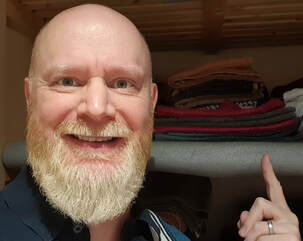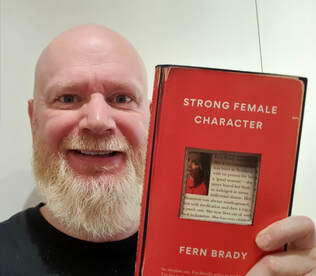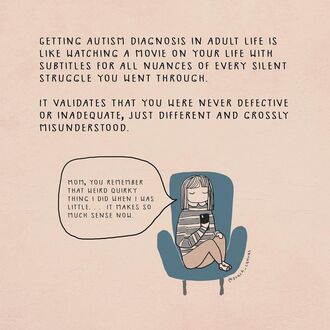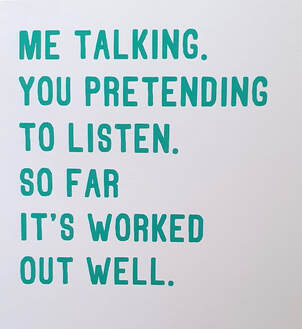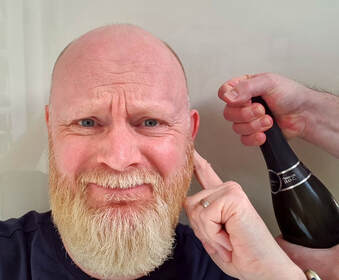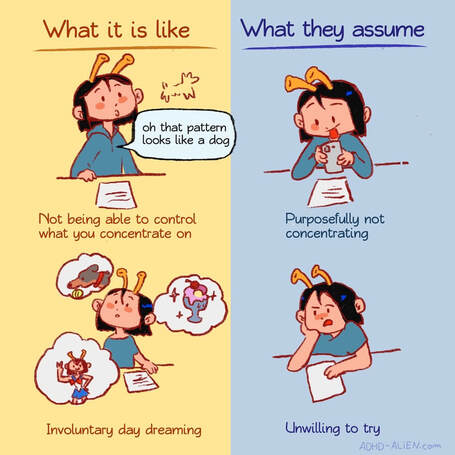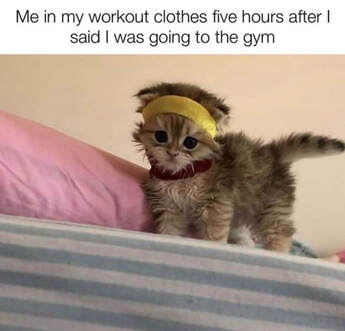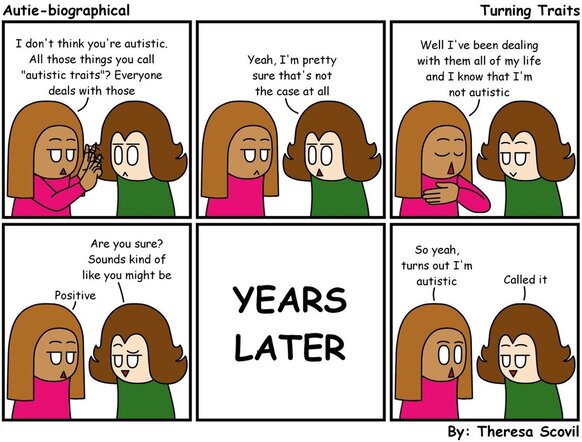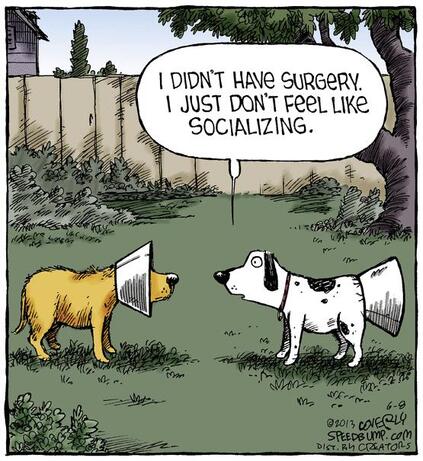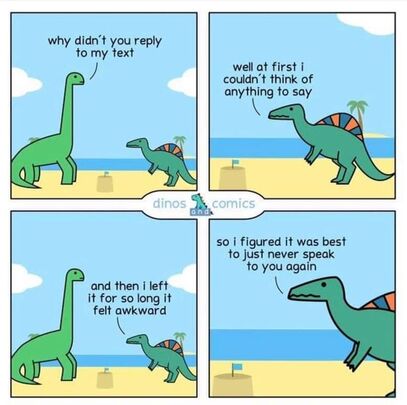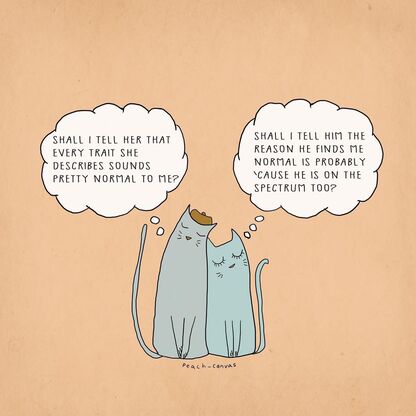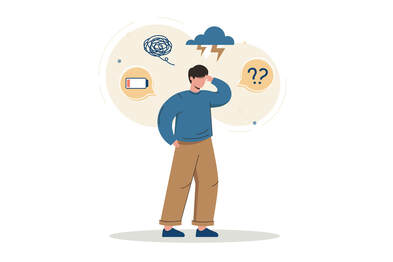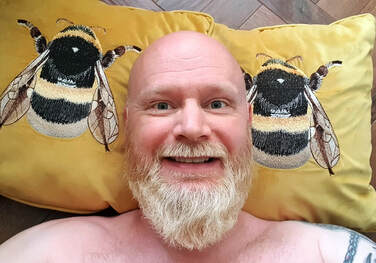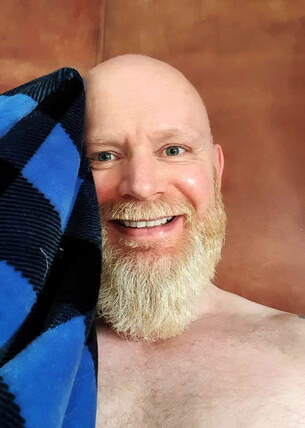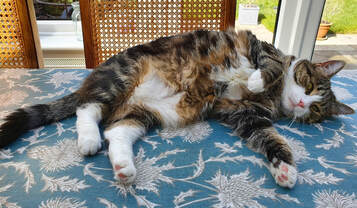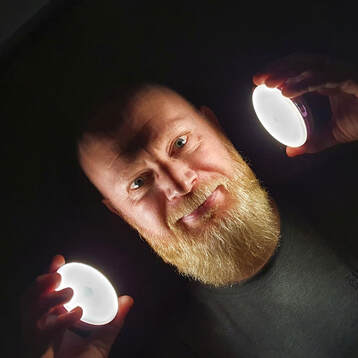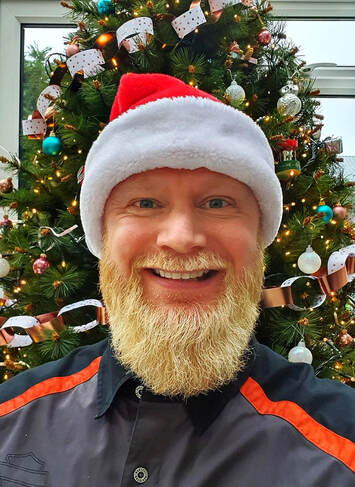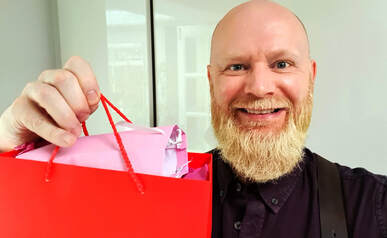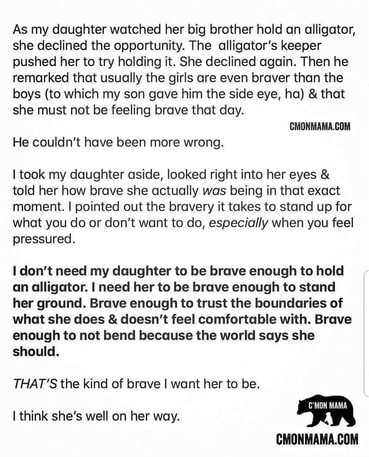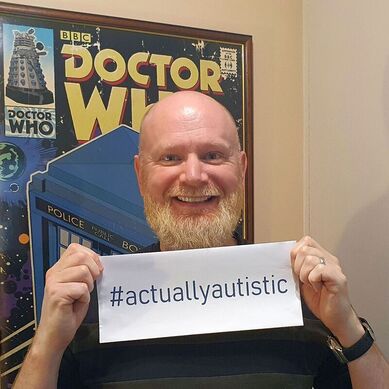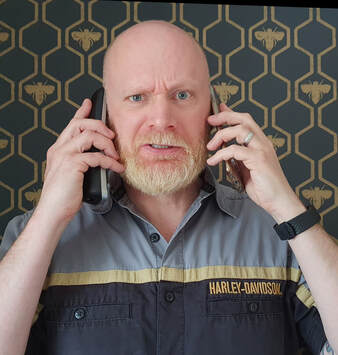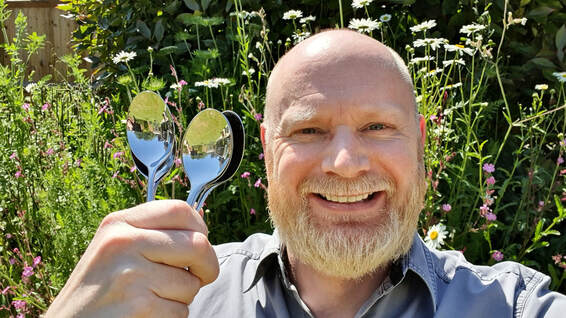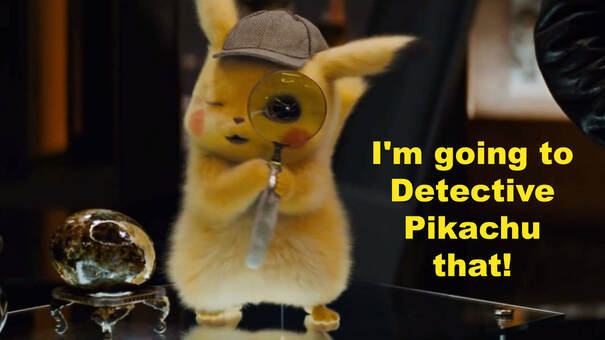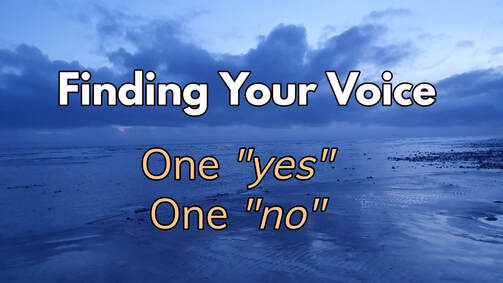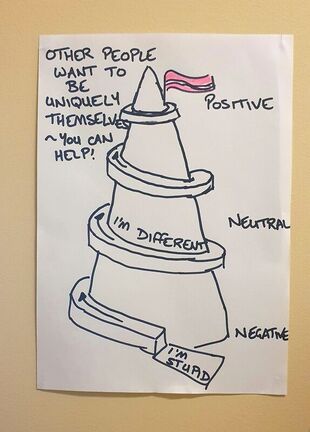Social Media Posts
With the exception of Thriving Autistic, I have no relationship or affiliate advertising with any products, organisations or applications shared in this blog. Any resources listed here are for information only and are used at your own risk.
If you would like an introductory call please fill in the form here.
If you would like an introductory call please fill in the form here.
"Parenting Support" (17 June 2024)
I’m not a parent, so the following suggestions have come from families where a parent or child is neurodivergent:
BOOKS
So, I'm Autistic: An Introduction to Autism for Young Adults and Late Teens by Sarah O'Brien
The Strengths-Based Guide to Supporting Autistic Children: A Positive Psychology Approach to Parenting by Claire O'Neill
A Different Way to Learn: Neurodiversity and Self-Directed Education by Naomi Fisher (recommended if someone is struggling in school)
Helen Edgar at Autistic Realms has some free and paid e-books available to help families at www.autisticrealms.com/resources - including Autistic Burnout - Supporting Young People At Home & School: www.autisticrealms.com/post/autistic-burnout-at-home-school
FACEBOOK GROUPS
Autistic Parents UK – peer support for parents who are Autistic themselves, with children of any neurotype, living in the UK: www.facebook.com/groups/autisticparentsukpeersupport/
Gentle parenting for autistic / ADHD / PDA children UK (and beyond) - A space for parents with neurodivergent children, who use gentle parenting methods: www.facebook.com/groups/207951976411320/
PODCASTS
Square Peg Round Whole Podcast – a space to discuss diversity and how to embrace our neurodivergent kids at home, at school and in the work place: www.squarepegroundwhole.com.au/podcast
The Yellow Ladybugs Podcast explores the world of autistic girls, women and gender diverse individuals, supporting you through those challenging moments, (including episodes on neurodivergent parenting): open.spotify.com/show/5VrHmhxRZIaWteWAVe8f7y
ORGANISATIONS
Grove is a safe community for neurodivergent children and young people to connect through shared interests and experiences. Includes group programmes, individual mentoring and online social groups: gr0ve.org
Outside The Box Sensory was started by Helen Daniel, to provide support for neurodivergent children. Including an online community, free downloads and a Facebook group. More info at www.outsidetheboxsensory.com
The Autistic Girls Network – a registered charity offering support and information, (including on parenting). Their website is autisticgirlsnetwork.org and Facebook group: www.facebook.com/groups/198220980748417/
A2ndvoice CIC specialises in providing autism-specific services to children, teenagers, and their families. They also do outreach to the Africa, Caribbean, Asian, and Minority Ethnic Communities (ACAME) and Dual Heritage Communities in tackling the taboos and myths around Autism: www.a2ndvoicecic.co.uk
WEBSITES
Autism Understood – an excellent website explaining what autism actually is: autismunderstood.co.uk
We Are Like Your Child has provided a checklist of questions to address when trying to identify the source of and alleviate aggression on the part of an autistic child or adult: wearelikeyourchild.blogspot.com/2014/05/a-checklist-for-identifying-sources-of.html
Five neurodivergent affirming resources for younger children: ndconnection.co.uk/blog/5-neurodivergent-affirming-resources-for-younger-children
A collection of resources why Applied Behaviour Analysis (ABA) and other ‘behaviourism’ therapies are harmful for neurodivergent children: stimpunks.org/why/behaviorism/
Supporting your young person through autistic burnout: thinkingautismguide.com/2023/09/supporting-your-young-person-through-autistic-burnout.html
TRAINING COURSES
I've taken part in Kieran Rose's course called Inside of Autism, which had lots of information for parents. (Kieran is Autistic.)
The course has now changed to a membership scheme, more info at theautisticadvocate.com/ioamembership/
They also run a course for autistic kids called Neurobears: theautisticadvocate.com/neurobears/
PDA (‘Pathological Demand Avoidance’ or 'Pervasive Desire for Autonomy')
Kirsty Forbes has lots of information on her YouTube channel, especially around PDA: www.youtube.com/@KristyForbes/videos
The PDA Society has support for PDA people, parents and carers, and professionals: www.pdasociety.org.uk/
SPECIAL EDUCATIONAL NEEDS
Not Fine in School - is a resource for the growing numbers of families with children experiencing school attendance barriers: notfineinschool.co.uk/
IPSEA "the leading charity in the field of SEND law in England, and we provide free and independent legal advice and support to families of children and young people with SEND": www.ipsea.org.uk/
No-Nonsense Guide to SEN Law: www.matrixlaw.co.uk/wp-content/uploads/2023/03/Noddy-No-nonsense-Guide-to-SEN-law-2023-March-2.pdf
SEND Family Instincts, open 365 days a year, supporting families and professionals to navigate the SEND system in the UK: www.sendfamilyinstincts.com
Special Needs Jungle is a not-for-profit organisation: www.specialneedsjungle.com
Facebook group: Education Otherwise Than At School - supporting SEN Families: www.facebook.com/seNDSupport
I hope that helps. Please send me a message if you’d like to chat further or there are other resources you’d like me to add.
Best wishes, John Pendal
| Parenting Support (pdf) |
"TV show: The Assembly" (11 April 2024)
My favourite TV show this year is called “The Assembly”. It’s a single 30 minute interview of Michael Sheen (Welsh actor, director and National Treasure) by 35 interviewers in one room who are all autistic, neurodivergent or learning disabled.
No subject is out of bounds. No question is off limits.
This is a real example of warmth, inclusivity and acceptance of people who are different. It’s well worth a look.
If you live in the UK or have a VPN you can watch it on BBC iplayer: www.bbc.co.uk/iplayer/episode/m001xyj5/the-assembly
If you can’t access iPlayer there are lots of clips on YouTube:
- www.youtube.com/watch?v=n8-f07KT_jo
- www.youtube.com/watch?v=Ig4bF-OelRk
- www.youtube.com/watch?v=G7Ui83GCMWU
I hope there are more programmes as welcoming and accepting as this one.
"Spatial Awareness" (14 Nov 2023)
At school I was taught we have five senses: touch, taste, sight, sound and smell. One of the senses we didn’t cover was Proprioception – knowing where your body is in space.
A lot of the people I work with describe having poor proprioception. One person said “it’s like my brain is trying to operate a human meat puppet and I don’t have all the strings.”
It is very common for people who are neurodivergent to have poor proprioception, and it can be worse when you’re struggling to get enough sleep, in the flow of a task, experiencing sensory overwhelm or closer to burnout.
Looking back at my school reports I scored badly at physical education because we always played team sports with balls, and I never knew where my hands or feet were. If I tried to join in I was made fun of by other students and teachers, and if I didn’t join in I was branded “stubborn and uncooperative”. Really couldn’t win.
Understanding how spatial awareness affects our lives has helped me with self-acceptance and confidence, but there are other ways it can help too:
SIGNS OF BURNOUT
For some of us it can be hard to tell when we’re exhausted or closer to burnout. (When I’m tired it’s as if my brain’s damage report machine is faulty.)
Having less spatial awareness might be one of the ways you, or the people around you, can notice that you’re struggling.
It may be that you hit your elbow walking through a door, or misjudge walking around furniture and bump into it. You might drop things more often, spill drinks, hit your head or fall over.
These can be useful signs to check in and see how you are doing. Do you need to cut back on social obligations, or have more rest?
RESTORING YOURSELF
Giving yourself feedback on where your body is might be a way of restoring yourself, or helping your body reset if you feel dysregulated.
- You might find benefit from tight bear hugs, wearing compression clothing or being under a weighted blanket.
- If you go for a massage you might prefer a deep tissue massage to being lightly touched.
- Some people like being burrito’d in a duvet, or having a partner lie on them.
- Several of my clients like wearing hats, and one likes pressing their face against trees.
- Lifting weights or kettlebells can also be restorative, giving you feedback on where your body is.
If you have shutdowns or meltdowns then having proprioceptive input (like a tight embrace) might be a way of recovering quicker – but we are all different so please ask someone beforehand if this is something they would like you to try.
IMPROVING SLEEP
At home I like to sleep under a couple of extra blankets for weight, and on holiday I might pile some extra clothes on my side of the bed (temperature depending.)
My massage therapist has a velvet bag full of beads that weighs 1kg/ 2.2 lbs. He noted that whenever he rests the bag on my head I fall asleep during the massage. I have one at home now and it’s very useful for turning my brain off if I want an afternoon nap: www.boots.com/boots-microwaveable-heat-wrap-10318219 (I don’t heat it up, I just lay it over my head)
ACCOMMODATIONS
Are there changes you’d like to make as a result of knowing this?
- One person wears compression sleeves under their shirt to work.
- I use a walking pole if I’m walking through milling crowds, (e.g. an open air market), so that my brain can concentrate on my hand gripping the pole.
- We’ve put some put some pipe insulation foam on door handles and shelves at home where I most often bang my head.
- I’ve also asked my partner to hug me if I’m in shutdown, or to let me know if he hears me say “ow!” because my steering is off.
Working out your spatial awareness needs can be a really useful step if you’ve discovered you are neurodivergent and don’t know what’s next.
Please let me know if you have any questions or suggestions you’d like to add.
Best wishes, John
| Spatial Awareness (pdf) |
"Autistic Women’s and Nonbinary Voices" (13 Oct 2023)
When I found out I was autistic I didn’t really believe it for several years. I thought that to be genuinely autistic you either had to be either winning Nobel prizes or unable to speak – and if you were somewhere in the middle with a house, a partner and a job – did that really count?
I grew in self-acceptance when I found people on social media and in the real world who were speaking openly about being autistic and were just like me.
Autistic women and nonbinary folk are often overlooked or not represented. That might be because much of the research into autism has been done on men, and there is even a theory that autism is “an extreme male brain”. Another reason put forward is that there is more pressure on girls to be social, and so they learn to mask more completely to fit in, whereas it can be more acceptable for (some) boys to be allowed to be solitary or exhibit autistic behaviour.
I think that’s why it’s important to promote the following voices, in case you find someone “just like you”. Also I’ve enjoyed a lot of the following recommendations because they are awesome, talented people and deserve to be heard.
I appreciate there’s a huge risk that I could be accused of mansplaining with this blog post, so let me clarify that the following suggestions have come from autistic women and nonbinary people in my life and clients that I’ve been lucky to work with.
AUDIO
Science journalist Sue Nelson shares her personal journey in an audio documentary “Inside an Autistic Mind”. Available in the UK on BBC Sounds: www.bbc.co.uk/sounds/play/w3ct5r81
The Late Discovered Club is a podcast that gives late discovered autistic women and marginalized genders a voice: www.podpage.com/the-late-discovered-club/
The Neurodivergent Woman Podcast is hosted by clinical psychologist Monique Mitchelson and clinical neuropsychologist Dr Michelle Livock: www.ndwomanpod.com
The Yellow Ladybugs Podcast explores the world of autistic girls, women and gender diverse individuals, supporting you through those challenging moments: open.spotify.com/show/5VrHmhxRZIaWteWAVe8f7y
The Loudest Girl in the World podcast is Lauren Ober's story of figuring herself out as a late diagnosed autistic and how it answered so many questions she's had: open.spotify.com/show/3jYnWGbwdwJzdq8gdu3Ioz
The Squarepeg Podcast by Amy Richards is specifically for autistic women and nonbinary people: squarepeg.community/podcast
VIDEO
Hannah Gadbsy has several comedy specials on Netflix, has published a memoir and also tours live shows (hannahgadsby.com.au). Hannah is genderqueer and uses they/ them pronouns, and talks about being autistic in their shows.
YouTuber YoSamdySam has over 100 videos on their YouTube channel: www.youtube.com/@YoSamdySam/ and also written “So you think you're autistic: A workbook for the confused person who's just trying to figure things out.”
“All About Women” is a one hour video from the Sydney Royal Opera House, where Amy Thunig interviews Chloe Hayden, Grace Tame & Jac den Houting: stream.sydneyoperahouse.com/videos/actually-autistic-all-about-women-2023
WORDS AND PHOTOS
Scottish comedian and Taskmaster contestant Fern Brady has published their autobiography “Strong Female Character.”
“Autism in Heels: The Untold Story of a Female Life on the Spectrum” by Jennifer Cooke O’Toole is a bestselling memoir.
Author Jackie Schuld has a series of written interviews with late-identified autistic folk at medium.com/@jackieschuld/list/late-identified-autistic-interviews-f6214bb999ce
Autistic advocate Sarah O'Brien has written a book for young people: “So, I'm Autistic: An Introduction to Autism for Young Adults and Late Teens.”
Photographer Rosie Barnes created a collection of portraits of autistic women called “No You’re Not”. You can see the collection of photos and interviews with the subjects at wellcomecollection.org/articles/Yd8L-hAAAIAWFxqa
“Women Beyond the Box” has created lists of the 50 Influential Neurodivergent Women in 2019, 2022 and 2023. You can see the latest list at www.womenbeyondthebox.com/50-influencers-2023/
I hope that helps. Please send a message if you’d like to chat further.
Best wishes, John
| Autistic Womens and Nonbinary Voices (pdf) |
"Adjusting to Autism Confirmation" (21 Sept 2023)
If you’ve just found out that you’re autistic: congratulations! This might have been something you suspected for a while or it might have come as a total surprise.
There are lots of different reactions to hearing the news. This blog post is written for folk who might be finding parts of it a challenge.
I found that there are benefits to knowing, but it took me a while to get there. I do think that I’m happier now and it’s answered many questions about why I’m the way that I am. Here are some of the steps that I found useful in case they help you too:
THERE’S NOTHING WRONG WITH YOU
I’m very grateful for a therapist who looked me in the eye and said “There’s nothing wrong with being autistic, there’s nothing wrong with you. You can let that shame go.”
If no-one has told you this before, please may I be the first: “There’s nothing wrong with being autistic, there’s nothing wrong with you. You can let that shame go.”
“Letting my shame go” is something I’m still working on, but that was definitely a turning point for me.
EMOTIONAL ROLLERCOASTER
You might go through some different emotional states. Not everyone can name their feelings, but some of the people who can name them describe the following:
- You might start with some joy or happiness that you have validation at last
- That might morph into frustration that it took so long
- Sadness for a ‘lost childhood’
- Anger at some of the ways you’ve been treated
- Then as you revisit decisions you’ve taken there might also be some guilt and shame to deal with
It’s worth noting that for autistic folk this emotional churn is WORK. On top of employment, being a partner, a parent or family member, running a house and all your other obligations there is an extra load on your body as it processes these feelings. That load is increased if your sleep is also disturbed.
Imagine a friend came to you and said “I’m struggling to pay my bills so I’ve taken on three extra part time jobs”. Any advice you give to your friend you are allowed to take yourself. You’re doing an extra job at the moment, processing in the background, so you’re allowed to take things a bit easier.
This isn’t the only emotional reaction people have. Some people have no feelings at all, or are completely fine with the news. Others might be frustrated, angry or depressed. Your feelings are valid and have meaning, whatever they are.
REFRAMING MEMORIES
After I found out I was autistic, I had a lot of disturbed sleep going over memories which troubled me. The thoughts went round and round in my brain, and only stopped when I learned to lay down revised versions of the memories with new endings.
There are two sentences I use for rewriting the endings, one is “I did the best I could with the information I had at the time” and the other is “I didn’t get anything wrong, I got it right for an autistic person.”
I’m learning to give my younger self the voice I didn’t have at the time, and that’s stopping the memories upsetting me now.
AFFIRMING SOURCES OF INFORMATION
My head was full of misinformation about autism, and I had a lot of work to do changing how I saw myself so that instead of telling everyone I felt “broken” I was able to say “I’m different”.
Fortunately there are lots of affirming materials available. Here’s a selection of things that have helped me or clients have recommended. This isn’t a complete list, it’s just a few examples – there are lots of others out there.
Websites
autismunderstood.co.uk
neuroclastic.com
Books
"Looking After Your Autistic Self: A Personalised Self-Care Approach to Managing Your Sensory and Emotional Well-Being" by Niamh Garvey
"So, I'm Autistic: An Introduction to Autism for Young Adults and Late Teens" by Sarah O'Brien
"Strong Female Character" by Fern Brady
“Unmasking Autism” by Dr Devon Price
YouTube
Autistic YouTuber "Yo Samdy Sam”: www.youtube.com/channel/UCk5aCrQAppGZ8atiOpgYZ1A
Instagram
Sonny Jane Wise “Lived Experience Educator”: www.instagram.com/livedexperienceeducator/
Comic Strip
“Autie-Biographical”: www.tumblr.com/autiebiographical
Podcasts
The Late Discovered Club gives late discovered autistic women and marginalized genders a voice: www.podpage.com/the-late-discovered-club
Neurodivergent Moments Podcast by comedians Abigoliah Schamaun (ADHD) and Joe Wells (Autistic): shows.acast.com/neurodivergent-moments
The Neurodivergent Woman Podcast is hosted by clinical psychologist Monique Mitchelson and clinical neuropsychologist Dr Michelle Livock: www.ndwomanpod.com
Square Peg Round Whole Podcast - how to embrace our neurodivergent kids at home, at school and in the work place: www.squarepegroundwhole.com.au/podcast
The Yellow Ladybugs Podcast explores the world of autistic girls, women and gender diverse individuals: open.spotify.com/show/5VrHmhxRZIaWteWAVe8f7y
Hashtags
#actuallyautistic #AutisticWhileBlack #BlackAutisticPride
If you’d like to chat to someone I’m part of the Neurodivergent Practitioners Directory – a searchable database of Neurodivergent therapists, coaches and assessment services: neurodivergentpractitioners.org
I hope that helps. Please send a message if you’d like to chat further.
John Pendal
After I found out I was autistic, I had a lot of disturbed sleep going over memories which troubled me. The thoughts went round and round in my brain, and only stopped when I learned to lay down revised versions of the memories with new endings.
There are two sentences I use for rewriting the endings, one is “I did the best I could with the information I had at the time” and the other is “I didn’t get anything wrong, I got it right for an autistic person.”
I’m learning to give my younger self the voice I didn’t have at the time, and that’s stopping the memories upsetting me now.
AFFIRMING SOURCES OF INFORMATION
My head was full of misinformation about autism, and I had a lot of work to do changing how I saw myself so that instead of telling everyone I felt “broken” I was able to say “I’m different”.
Fortunately there are lots of affirming materials available. Here’s a selection of things that have helped me or clients have recommended. This isn’t a complete list, it’s just a few examples – there are lots of others out there.
Websites
autismunderstood.co.uk
neuroclastic.com
Books
"Looking After Your Autistic Self: A Personalised Self-Care Approach to Managing Your Sensory and Emotional Well-Being" by Niamh Garvey
"So, I'm Autistic: An Introduction to Autism for Young Adults and Late Teens" by Sarah O'Brien
"Strong Female Character" by Fern Brady
“Unmasking Autism” by Dr Devon Price
YouTube
Autistic YouTuber "Yo Samdy Sam”: www.youtube.com/channel/UCk5aCrQAppGZ8atiOpgYZ1A
Sonny Jane Wise “Lived Experience Educator”: www.instagram.com/livedexperienceeducator/
Comic Strip
“Autie-Biographical”: www.tumblr.com/autiebiographical
Podcasts
The Late Discovered Club gives late discovered autistic women and marginalized genders a voice: www.podpage.com/the-late-discovered-club
Neurodivergent Moments Podcast by comedians Abigoliah Schamaun (ADHD) and Joe Wells (Autistic): shows.acast.com/neurodivergent-moments
The Neurodivergent Woman Podcast is hosted by clinical psychologist Monique Mitchelson and clinical neuropsychologist Dr Michelle Livock: www.ndwomanpod.com
Square Peg Round Whole Podcast - how to embrace our neurodivergent kids at home, at school and in the work place: www.squarepegroundwhole.com.au/podcast
The Yellow Ladybugs Podcast explores the world of autistic girls, women and gender diverse individuals: open.spotify.com/show/5VrHmhxRZIaWteWAVe8f7y
Hashtags
#actuallyautistic #AutisticWhileBlack #BlackAutisticPride
If you’d like to chat to someone I’m part of the Neurodivergent Practitioners Directory – a searchable database of Neurodivergent therapists, coaches and assessment services: neurodivergentpractitioners.org
I hope that helps. Please send a message if you’d like to chat further.
John Pendal
| Adjusting to Autism Confirmation (pdf) |
"Being in a Relationship" (28 July 2023)
Here are some of the situations I've dealt with in a long term relationship, and how we got around them:
HEADING IN DIFFERENT DIRECTIONS
One of our earliest rows was over a meeting we had to get to together, and my partner wasn't ready. I left because I thought one of us should get there on time, and it seemed he didn't want to go. He said I should have waited for him.
We took that to counselling and our therapist pointed out we were concentrating on our behaviour and who was "right". Instead she asked us to talk about our goals.
We both wanted to get to the meeting, but because of our upbringing we went in opposite directions.
Now look at what we want the outcome to be, then how do we want to get there?
LEAVING WITHOUT SAYING GOODBYE
Another early issue was me being cooked in social situations and leaving without saying goodbye. My partner felt abandoned.
When there's a "glitch in the matrix" we sit down when we've had enough to eat and some sleep, and say "how do we want this to be next time?"
We came up with the idea of a 'social safe word'. Either of us can say a particular word to mean we want to leave.
I promise you, he uses that as much as I do.
If your solution can apply to both of you, then it's less about trying to fix one person and more about making the relationship stronger.
AUTISTIC SHUTDOWN
Sometimes in arguments I go into autistic shut down. My partner used to be upset by that, saying I was being manipulative or abandoning him.
I have no choice, it's something that happens if I think I've upset someone.
Again, we had a chat away from the trigger and decided in future I wanted him to give me a tight hug when I couldn't speak.
It really helps - and I've started giving him a tight embrace when he's upset too.
PROCESSING TIME
I often need processing time to work out what I'm feeling. Once we had some guests and no-one could decide what to eat. Everyone kept saying "I don't mind".
In frustration I made an offer, and then people started telling me why that wouldn't work.
I had to take myself away because I was so angry. After 25 minutes I worked out that it was because when I was small I used to feel that adults had set a trap for me. They'd make me choose how to do something and then tell me off for getting it wrong.
No one was setting a trap for me here, but it took me a while to work out why my feelings were spiking.
Again, we got to have a chat "next time this is happening, how would you like it to be?"
BEING INTERRUPTED
I hate being interrupted mid-task. If you ask me if I've eaten or drunk anything recently I can feel nagged or criticised. At the same time, I can absolutely get so absorbed in a task that I don’t eat or drink and then get to the end of the day with a headache.
My partner and I had a chat about how I wanted to be interrupted. I realised I want to be touched gently, then wait until I've made eye contact. I don't mind a physical interruption with a pause before any speech. That allows me to finish the sentence in my head before other words come crashing in.
My partner got to say how he wanted to be interrupted too.
WE ARE BOTH LOW ON ENERGY
Sometimes the only trigger is lack of energy. The other night we were getting very snippy at each other in the kitchen. Finally I said "I'm on 25% spoons, how about you?"
He said "I'm on 15%"
"Then why are we even in the kitchen? Let's cancel our plans. You go sit down, I'll get takeout.”
HOW DO YOU WANT TO BE?
That's what this boils down to: how you can build the relationship so that you're kinder to yourselves and each other.
That might mean inventing your own language for things. Now we might talk about "I'm in the foothills" to describe a particular situation, or "low on spoons" if we've had no sleep.
It might mean adjusting physical contact: I like a chat when we're facing the same way, maybe on a walk or cuddling on the sofa.
When we have a disagreement we wait until we're away from the trigger, then try to work out "so, that happened. How do we want to be next time?"
| Being in a Relationship (pdf) |
"Asking for Accommodations" (2 June 2023)
There may be a time in your life when you need to ask for an accommodation, for example, asking a doctor to put their advice in writing so that you can read and process the news later. It’s taken me a while to grow in confidence to ask for things. Here are some tips and strategies I’ve learned along the way about how to ask and overcoming the things that things that held me back.
DEALING WITH IMPOSTER SYNDROME
After I found out I was autistic there were many years when I did nothing about it. I thought that if I asked for an accommodation I’d be taking that away from someone who needed it more than me.
I looked at representations of autistic people in the media, and it seemed you had two choices: being a savant (Ben Affleck in the Accountant)/ Nobel Prize winner (Sheldon Cooper)/ Sherlock Holmes at one end – or rocking in an institution (Rain Man) at the other. I knew I was neither of those things. I have a job, a partner and I can look people in the eyes when I talk to them … so how could I be genuinely autistic?
It was only when lockdown happened that things changed. Despite the daily bad news coming in from around the world I really liked staying away from other people. I loved not talking to strangers and making small talk, especially when shopping. I liked people staying two metres away from me. That’s when I realised that I was much happier making some changes in my life, and I didn’t want to go back to the anxiety I had before.
Since then I’ve been following the hashtag #actuallyautistic on YouTube and Instagram, and found a lot of comfort in seeing people who are just like me talk about their struggles and solutions.
Spending time with people who are just like you, whether you interact with them or not, can be big help with self-acceptance and dealing with imposter syndrome.
MAKING YOURSELF SUSTAINABLE
Something else that held me back from asking for anything was a loud voice in my head telling me that I was being selfish. I’d spent a lifetime trying to “earn my place at the table” by being a people pleaser, and it was really uncomfortable trying to speak up for myself.
Someone suggested whenever I hear the voice “you’re being selfish!” to change that thought to: ”I’m making myself sustainable.”
I like sustainability: it’s about looking after the planet, being green, recycling, and making sure we’re all thriving. You are part of the planet, you’re allowed to look after yourself too.
Now if I suggest an alternative plan, rather than just agreeing to a request, I tell myself “you are making yourself sustainable so that you can help people tomorrow.”
UNBALANCED SCALES
The very first time I remember asking someone for an accommodation was a big deal. A close friend was staying in our house and about to pop a cork out of a bottle. I’ve always hated sudden surprising noises. I remember as a child being terrified when balloons popped. Even a cork popping out of a bottle would give me sticky palms and I’d want to leave social events early.
This friend was close enough, and the time was finally right for me to pluck up the courage and quietly ask: “could you let me know when the cork’s about to pop?”
He did, and my body had no reaction at all. No sweaty palms, no sick feeling in my stomach. I didn’t want to leave and go to bed early.
That’s when I realised I have carried a set of unbalanced scales in my head. My whole life I’ve been weighing up the inconvenience to other people versus the benefit to myself, and only wanted to say something when the benefit was greater than the inconvenience, but the scales were wrong. I’ve always massively overestimated the inconvenience to other people, and greatly minimised the benefit to myself.
When my friend let me know when the cork was loose I realised it was no bother to him at all, and a massive benefit to me.
It really was worth asking, after all.
YOU DON’T HAVE TO GIVE A REASON
As I grew in confidence I stared to ask for more, like asking for a table in a quiet corner of a restaurant. However, I always felt I had to disclose I was autistic when I asked for something, which runs the risk of a bad reaction. (e.g. “You’re not autistic, I know someone and you’re nothing like them.” … to which my reply is “do you know someone else gay because I’m probably nothing like them.”)
Eventually a friend said: “you don’t have to give a reason when you ask for something. That waiter will have heard many times every shift a request for a quiet table. You might be on a date, or a business meeting, or wear hearing aids – they don’t care. You can just ask.”
That was a huge weight off my shoulders, and has helped me ask for far more things because I’m not having to disclose as well.
I also think just asking without a reason can make you look more confident and professional. For instance, if you’re invited to a meeting at work without a subject line you could write back and say “I need to know what the meeting is about because I’m autistic and lack of clarity makes me overthink situations and then I go into burnout.” (which is true)… or you could say “Thanks for the meeting invite. If you let me know what it’s about I’ll be able to prepare.”
These days I use a lot more of the second type of request.
ACCOMMODATIONS FOR EVERYONE
There are some accommodations that only work if you’re the only person that gets them. For example, if you need a quiet room by yourself at work it’s not effective if everyone is allowed to use the same room.
I am a big fan, wherever possible, of making accommodations available to everyone - because they are just good ideas that everyone should have access to.
One of my accommodations, when I’m out with a group of friends, is to say to someone “if I’ve been quiet for a while, please could you throw me a question. I probably want to join in but don’t know how.”
That idea could work for anyone. You don’t need to be autistic to struggle to know when to join a conversation.
Another accommodation is my partner and I have a social safe word either of us can use if we want to leave an event – but he uses it as much as I do.
When accommodations can apply to everyone, then it’s less about “fixing the autistic person who’s broken” and more about “let’s do this because it makes life better for everyone.”
Remember that you're on a voyage of discovering who you are - so the accommodations you ask for may change. You're allowed to come back and ask for more as you discover what your real autistic self needs.
If you have any tips that have helped you ask for accommodations, please write and let me know.
Best wishes, John
| Asking for Accommodations (pdf) |
"Motivation Strategies" (22 April 2023)
I’m often asked for help by folk struggling to initiate tasks. Before we look at ‘tips and strategies’ – first let’s check if any of the following is holding you back:
BURNOUT - in burnout your brain goes into "demand avoidance mode" and you don't want to do anything.
SENSORY OVERLOAD - are unpleasant things happening to your senses? Do you need to move somewhere else, or put on headphones / sunglasses?
AUTISTIC INTERTIA - do you need to complete a task before moving on, and do you need to do something in between (e.g. walk outside/ breathing exercise/ favourite music) to help with the transition?
As long as it’s okay for you to continue, here are some strategies clients have shared that help them do tasks:
UPDATE AN EXISTING ROUTINE
If you want to start something new it can help to attach it to something else you're already doing. For example, if you want to do start each day with yoga breathing and you already have a routine for coffee/ breakfast/ shower – fit yoga breathing into that list. That way your brain is updating an existing pattern rather than trying to remember a brand new thing.
GIVE YOURSELF A DEADLINE
If the task doesn't have a deadline it can help me to pick a day and schedule it in, rather than wait until I feel like I want to do it. My feelings are unreliable, but if I schedule something then I'm more likely to do it.
DISTRACTION LOG
If your brain keeps thinking of other things you should be doing instead, try keeping a "distraction log". Write down things your brain remembers or would rather be doing for later. When you look back at the list after the task is done you may be surprised how much or little of it you still want to do.
TURN LISTS INTO A GAME
Some people don't like lists and find them oppressive. One client turned lists in to a game. They drew a horizontal line on a board. New tasks were written below the line. Completed tasks were moved above the line. The game every day was to get “something above the line".
SEE THE END RESULT
Can you see the end of the task clearly? Some people find a task overwhelming if it's not clear what the completed task looks like. (I look at my last few tax returns before starting this year's, so I know what the end result looks like.)
WHAT'S THE POINT?
You probably won't want to start a task if you don't understand why you're doing it. Can you find out a reason, or come up with a reason that works for you?
ACCOUNTABILITY
Some of us are more motivated when we can tell someone when we've achieved a goal. Is there someone you can promise you'll do the task, and will hold you accountable? Some folk use 'google tasks' for this, and get a dopamine hit when they tell google something's been done.
TASK PAIRING
Have someone work alongside you. They don't have to be doing the same task, but they commit to doing something at the same time as you (virtually or in the same room). Some people say this helps them with concentration.
REPLACING "SMOG" WORDS (SHOULD/ MUST/ OUGHT/ GOT TO)
There is a theory that telling yourself "I should/ got to/ ought to/ have to/ need to do it" increases your guilt and is counter-productive. It’s full of self-criticism and makes you less likely to do a task.
If you can change that sentence to include values you admire, or something positive that you’d like more of in your life, then there's more chance of you doing it. For example: “It would be confident/ wise/ creative/ strong to do …”
(Credit: Thanks to Hattie Voelcker for this idea - www.findyourtruevoice.co.uk)
BE VISUAL
If I have a black and white word document to type, I'll start with a spider graph on a big sheet of paper with coloured pens - or a different coloured post-it notes for different thoughts. When I've worked out what I want to say, my last step is typing it in black and white. The more colourful and creative I can be, the more likely I am to do the task.
These are only suggestions and we are all different, so don't worry if these ideas don't appeal or work for you.
If you don't mind a challenge: Each time you don't want to do something - take some time to work out why you don't want to do it.
The answers to that question can help us develop strategies that do work for you.
Best wishes, John
| Motivation Strategies (pdf) |
"World Autism Awareness Day" (2 April 2023)
Today is World Autism Awareness Day - which gives me a fair amount of anxiety that I'm going to hear something about autistic people that upsets me.
Instead, here are some things about autism that have made me laugh out loud:
An episode of Greg Davies comedy "The Cleaner", broadcast on BBC1 last Christmas: www.bbc.co.uk/iplayer/episode/m001gd6n/the-cleaner-a-clean-christmas (only available to UK viewers)
Fern Brady's book "Strong Female Character": www.waterstones.com/book/strong-female-character/fern-brady/9781914240447
And the comic strip "Autie-biographical": www.tumblr.com/autiebiographical
I wish you all an affirming day, whatever neurology you have.
Big hugs, John
"How Autistic People Make Friends" (10 March 2023)
I’m often asked in coaching conversations how autistic people make friends. It’s a subject that I relate to very strongly. For the first fifteen years of my life I struggled to make any friends at all. My friends were Doctor Who novels from the local library or (once they were invented) home computers.
When I was fifteen I discovered evangelical Christianity, (the “happy clappy” kind), and spent the next seven years joining multiple churches trying to find human connections. I realise with hindsight that I was put through gay conversation therapy during this time, but I didn’t mind because I got to meet people who seemed to be interested in me – and the alternative was loneliness.
It can be a very autistic experience to feel lonely in a busy world. I've spent my life looking for ways to meet other people that has some structure to it and without any small talk. My biggest nightmare is being given a name badge and being told to "work a room".
If I look back over my professional career I often choose work that would help me connect with people in an autistic way. I’ve been a master of ceremonies, workshop leader, stand-up comedian and online coach, which are all ways of having conversations with a point and a time limit – after which I’m allowed to leave without making idle chatter.
Here are some tips and strategies that I’ve learned along the way – sharing in case they help you. Remember, we are all different so what helps one autistic person might be encouraging somebody else to mask. Please only stick with the things that are right for you.
SHARED TASKS
Autistic folk tend to make friends over shared tasks. Some autistic people have found connection with others at groups playing board games, painting, or photography. It could be a social group like a local walking club, or a more formal setting like adult education. Movie nights or book clubs might be another option.
One person went to a painting class because they said "even if I don't talk to someone, I still come home with a painting."
I didn’t realise that going for a walk with a friend was an autistic-friendly activity, but you’re both facing the same direction so you don’t have to look at their face while you’re talking.
You don't necessarily need to keep seeing the people you meet beyond the end of the activity. I’ve done a few educational courses which helped me feel like I was meeting people - but I didn't see them outside of the course.
It's possible you'll meet other autistic people doing task based projects for the same reason as you. I made a very good friend on my coaching diploma, as they were also autistic and struggling with the same issues as me.
Several clients have mentioned the MEETUP app as a place where they find activities they want to try out without any commitment.
GAMESwww.eventbrite.co.uk/o/thriving-autistic-clg-33096870621
Gaming can be a popular way for autistic people to make friends – whether that’s an online game where you can chat to other people inside the game, or at a games shop where you can play trading cards/ role playing/ board games on the premises.
We now have a few games at home we play when guests visit, (Qwirkle is my favourite), as that’s an easier way for me to be social.
Some groups and activities – like gaming - will attract more neurodivergent folk without being advertised as such.
AUTISTIC SUPPORT GROUPS
Some autistic support organisations run groups and social events, online and in person.
Thriving Autistic, who I work with, has a monthly online peer meet-up. Follow Thriving Autistic on Eventbrite for details of the next one (www.eventbrite.co.uk/o/thriving-autistic-clg-33096870621)
STAYING IN CONTACT WITH PEOPLE YOU ALREADY KNOW
It can be an effort keeping up with messages once you’ve made friends. On days you don’t feel like talking you might not be able to reply, and then when too many days have passed you might be too embarrassed to reconnect and decide it’s easier to let the friendship go.
One strategy is using a messaging service (texts, Slack, Whatsapp etc.) to stay in touch with friends. On days with lots of energy I can reply with words. On medium days I'll send a meme or a cat photo, and on days when I have no words I can send three heart emoji’s as a reply (meaning "I'm here and I love you, but I have no words today.") That works with my energy levels and means I have a way to respond even when I can’t think of words.
PERSONAL INTERESTS
Do you have a deep interest in a subject? You might find connections with other people who share your passion. Your deep interest might be of great value to the group.
Or is there an activity that you find restores your energy, like being in nature or listening to particular music? If you join other people who are doing the things that restore you it can be part of your self-care as well.
FINDING PEOPLE LIKE YOU
Another idea is to follow the hashtag #actuallyautistic on social media (Instagram, YouTube, Facebook etc.) where you can find people like you.
I’ve learned a great deal about myself from other autistic folk. It is very useful meeting people like you to combat doubts that you’re not autistic after all, despite the evidence.
FINDING A PARTNER
Don’t assume that you can only be with someone else who is autistic. I’ve seen some really amazing relationships between two people of different neurodivergences. For instance, in a couple where one person is ADHD and the other is autistic, the ADHD person can supply enough social energy for both of you, and the autistic person can supply structure and routine that the ADHDer needs.
I’ve also seen relationships between someone autistic and someone neurotypical who grew up with an autistic person in their family. That way the advocacy work has already been done before the relationship started, and the autistic person reminds the neurotypical person of someone else they love.
It’s also possible that you are sure you are going out with someone neurotypical, but as a result of going out with you they realise they are neurodivergent after all!
MAKING SOCIAL EVENTS MORE INCLUSIVE
If you’re running a social event, please provide options for people who struggle with informal conversation. It could be running a game or a quiz to help people get to know each other, or providing a quieter room away from the main space for anyone who is overwhelmed.
I hope that helps. If you have any other tips, or would like to get in touch, please send a message.
Hugs, John x
| How Autistic People Make Friends (pdf) |
"A Sobering Question" (2 Nov 2022)
I’ve been rethinking my relationship with alcohol recently.
It started in August at an event in Denmark, when I realised just how many of my anecdotes began: “Actually, the most drunk I’ve ever been was in …”
They are great stories, and I don’t mind telling them – but it made me wonder just how often I’d been drunk at events around the world.
I spent my twenties and thirties going to leather bars and clubs every weekend. I don’t think I got drunk regularly back then, but I certainly used alcohol to help me relax when other people were around. Sometimes I used alcohol if the lights were too bright or the music too loud, to help me cope with sensory overload. Other times I drank because I was uncomfortable being in a room full of strangers.
In 2003 I won a competition in Chicago called “International Mr Leather” and as part of the prize I took a year off work and flew to events around Europe and North America full time for a year. I was in a different city every week (sometimes a different city every day) and crossed the Atlantic twice a month. I met thousands and thousands of people.
I definitely had a belief that I was more fun to meet if I’d been drinking. If I was sober, I was very aware that I was too serious, too intense, or not fun and relaxed enough for most people.
So I created an email address ‘vodkajohn @ iml2003.com’ (no longer in use) and had it printed on a t-shirt, which I wore with my leathers. I encouraged people to buy me cocktails when I was onstage.
I wanted to be the life and soul of the party, and I thought that more than a few drinks would help me achieve that.
All of this was great fun and a fantastic privilege. I’m not complaining at all. But I have been asking myself a question whenever I want a drink this year:
“Are you drinking this because you’re enjoying the drink, or because you’re not enjoying something else?”
Sometimes the answer is “yes, I really want the drink” – and that’s okay. Other times the answer has been “I want the feel of a reward at the end of a long day. I’d like a big glass full of ice and tonic and a piece of fruit in it” – and then I’ll make a non-alcoholic drink that looks like a cocktail.
But sometimes the answer is “I want a drink because I thought this was a quiet pub with my friends, and now a cabaret singer has started, and the room is full of people I don’t know, and the next table is really loud and I can’t process all the noise” … and now I’d rather say “can we go somewhere quieter?”
I think I’ve been using alcohol to mask being autistic, to cope with sensory overload, and help me appear relaxed and fun in places where I feel neither.
Chatting with clients I’m not the only person who does this. Many people mention behaviour they’d like to change, whether it’s alcohol or other drugs, eating sugary snacks, or getting lost in video games.
I’ve found a useful place to start, instead of concentrating on the thing you think you’d like to cut down, is to ask:
“Are you doing this because you like it, or because you don’t like something else?”
If the answer is that you are struggling with something else in your life, let’s talk about that.
Before I knew I was autistic I didn’t know it was possible to change your life to fit you – I always thought I was the one who had to change to fit in.
Life is much more rewarding now that I ask “what is it that I want?”, and sometimes it’s just a quieter room with fewer people.
| A Sobering Question (pdf) |
"Not Being Able to Describe Your Feelings" (19 August 2022)
Some people have difficulty recognising or describing their emotions. They have feelings, and the feelings can often be overwhelming, but working out what they are and naming them can take a lot of effort.
If that sounds like you, then you may have Alexithymia – which means “no words for emotions”. It is thought that 10% of the general population has alexithymia, but that percentage increases greatly if you are autistic.
I can describe my emotions most of the time, (I struggle to work out what’s happening if a situation is new to me), but many of my clients are Alexithymic and this post has been written with their assistance.
WHAT DOES IT FEEL LIKE TO HAVE ALEXITHYMIA?
One client says that it’s as if their emotions are being held back behind a wall, and they have a small hole they can look through to try and see what’s on the other side.
Another says it’s as if their emotions are behind a sheet of frosted glass, so they can’t see them clearly.
Someone else said they might be able to name their emotions if they put a lot of work into it. Tidying and organising where they live helps. Doing things like washing up dishes and putting them away can help them work out what they were feeling – but it can take days or a week of effort.
Another client added “since discovering I have alexithymia I've learned that I feel some emotions literally as bodily sensations. For example an ache in my limbs usually means a negative emotion like grief or feeling hurt by another person.”
That can mean that identifying your feelings is a two-stage process. Another client agrees with this: “first I have to work out if the sensations in my body are physiological, e.g. indigestion, or emotional. If they are emotional then I need to spend time working out what the emotion is.”
My favourite description was someone who said “I can tell you how big my feelings are – but not their context. I know the amplitude of the waves but not their frequency.”
WHY IS IT IMPORTANT TO KNOW IF YOU HAVE ALEXITHYMIA?
Not knowing if you have alexithymia can lead to extra stress in life.
A simple question such as “How are you?” can be very costly in terms of personal energy.
Do you lie and say “I’m fine”? (Lying can be very costly for autistic folk.)
Do you tell the truth and say “I don’t know”, which often leads to the reply: “Really? You don’t know how you are?” (Not being believed can also be very costly.)
Or do you spend time and effort working out how you are, only to find there’s no closure as the other person has moved on and doesn’t want to hear your delayed reply. (Not having closure on a conversation can also be costly.)
I know people who have been pushed into burnout just by the repeated daily question of “how are you?” or “how are you feeling?”
Another client said they had struggled in therapy for many years – and now they realised it’s because every session was interrogating them on how they felt about things, which they could never answer without a great deal of effort.
THE BENEFITS OF KNOWING
I’ve seen a huge boost in self-esteem and self-acceptance when people find out that there’s a reason and a name for why they are the way they are. They are not alone, and there’s no reason to feel shame about it. They get to reframe their life with this information and find it now makes a lot more sense.
After reading this blog someone wrote to say: “Now that I know I have trouble identifying and accessing my feelings, it has been massively helpful to consciously focus on trying to identify what they are. If I can identify how I’m feeling, especially if the feelings are negative or I’m going through a hard time, it helps me manage my well-being by recognising my limits. I used to burn out all the time in my ‘previous life’, and I think it was because I kept pushing myself past my physical and emotional limits due to alexithymia. If I have negative feelings it usually means I need to try and stop and deal with a problem of some kind - otherwise I just keep banging my head against a metaphorical wall I can't even see and that leads to constant burnouts.”
EXTERNAL QUESTIONS
If you are struggling to name an emotion or internal sensation, one possible strategy is to use external questions rather than internal ones. This can be questions from other people, or questions for yourself.
For example, instead of asking “am I thirsty?” ask yourself “when did I last drink something?”
Instead of people asking “how are you?” they could ask “what did you do this week?”
(One client found many questions about how they were feeling from strangers or work colleagues could be answered with “I’ve just had a coffee” or “I need a coffee” – and that seemed to satisfy them.)
DO YOU FEEL SAFE?
It’s possible that even if you can’t tell what emotion you are feeling, you might be able to tell if you feel safe. One way of testing this is to think of something that happened to you and see if you can tell if you felt safe at the time.
A client remarked: "Safety is very physical. It feels okay. I'm able to move. Able to turn, instead of locked. I either feel safe or I don’t."
If you have access to that information, that is data that you can use. For instance, instead of asking “do I feel afraid or excited?” ask “do I feel safe or unsafe?”
If you have a fluttery feeling in your stomach, that might mean anticipation or anxiety. By combining the fluttery feeling with the safety question, you might be able to work out that “fluttery + knowing I’m safe” means anticipation or excitement, and “fluttery + feeling unsafe” is anxiety or fear.
If this doesn’t work for you – are there any other signifiers you can look out for which provide context clues?
SENSORY DATA
A third strategy is to look at what your raw body data is telling you. One client wasn’t able to answer the question “am I in love with my partner?” with talk of their feelings, but they were able to describe their raw sensory data: “my body wants to be touched by you, when it doesn’t want to be touched by anyone else, and since I met you I sing more when I’m alone.”
(I don’t know about you, but I much prefer their answer using sensory data.)
LOOK TO THE PAST
If you struggle to answer questions about what you’d like to do in the future, try looking into the past for clues.
So if someone asks “would you to go to a bar with friends tonight?” and you have no idea, try asking yourself “have I ever liked being in a bar with my friends?”
“WHEEL OF EMOTIONS”
There are many examples of “emotion wheels” using google images.
Some people have found working with an “emotions wheel” has helped them – but I know as many people who found it unhelpful.
For instance, “courageous” might be next to “happy” on the wheel, but one client puts “courageous” next to “fear”. I associate “surprise” with “anxiety”.
Any exercise where you are being told what emotions look like or how they relate to each other may be teaching someone how to suppress their natural responses and pretend to be someone they are not, so use with caution.
DIFFERENT WAYS OF LOOKING AT ALEXITHYMIA
One of my clients found it helped to think of alexithymia as similar to colour blindness. It’s not an absence or lack of something, it’s that you experience the world differently. As a result, you might process things that other people cannot see.
Another client was frustrated saying “if only I could name my emotions life would be so much easier!”
I said “that sounds like someone saying, if only I had the recipe I’d be able to bake the cake!”
“Yes,” they said, “that’s exactly it.”
Unfortunately, being able to name your feelings is a lot like being able to name the ingredients of a cake. Being able to tell if I’m happy or sad is like being able to name flour, eggs, butter and sugar. It still doesn’t given me a method, oven temperature or cooking times. That’s why people who can name their feelings still go to see therapists – we are all trying to work out the recipe.
FURTHER RESOURCES
A video on alexithymia by Autistic YouTuber “Yo Samdy Sam”: www.youtube.com/watch?v=S3tD94tB6T4
A free test to find out if you have alexithymia: www.alexithymia.us/alexithymia-questionnaire-online-test
A blog post by Michaela Morgan on what it’s like to have alexithymia: neuroclastic.com/no-really-im-fine-on-alexithymia/
I hope that helps. Please get in touch if you have any questions or would like to book an introductory call.
| Not Being Able to Describe Your Feelings (pdf) |
"Recovering from Burnout" (20 July 2022)
Seven years ago a therapist asked me “what do you do to relax?” and I replied “sleep”.
“No”, she said, “what do you do to relax when you’re awake?”
And I said “sleep.”
She asked me to describe a typical day, and I said “I’m either with other people and I’m operating at 100% efficiency, being the best employee, the best partner and the best family member I can be … or I’m by myself and I sleep.”
She asked what happened when I was on holiday, and I said “I either stay in my bedroom, or I lie in the cool under a tree, and sleep as much as I can to get the energy to come home and do it all again.”
Apparently, that’s not the default state humans are meant to be living in. Without realising it I was describing a life of masking and burnout.
Since that revelation I’ve been trying to change my life to “live in the middle” between those two states of 100% efficiency and unconsciousness. I look for opportunities to change my life to fit me, rather than me always changing to fit in the world, and I try and do things that recharge my batteries every day so I’m not just “heading for burnout”.
My partner says I have three signs when I’m over doing things and haven’t realised:
- My steering is off and I will bump into things without noticing. (He will hear me say “ow” walking through a doorway.)
- I become more manic and try to do EVERYTHING. (He says on the days I should be doing the least I try to do the most.)
- And there’s a delay answering simple questions, as my processing time is longer.
That’s when he checks in and says “are you having a low spoons day?” (non-judgemental) or “do I need to put you to bed?” (really annoying, but true).
I’ve discovered I’m not the only one in this situation. Most of my clients approach me because they’ve been signed off work with burnout, are heading towards burnout and don’t know how to stop – or have been through a recent burnout and don’t want it to happen again.
COMMON SIGNS OF BURNOUT
Some people don’t know they are in burnout, especially if this has been your whole life’s experience and you think “that’s how life is.”
Here are some signs to look out for:
Total exhaustion all the time
Being in “Demand Avoidance Mode” – not wanting to do anything, even self-care
Feeling down/ depressed
Getting quickly overstimulated
Increased anxiety
Increased irritability
Loss of appetite/ digestive issues
Loss of communication skills
Memory loss or gaps in recent memory
More frequent meltdowns
Reduced executive function
Seeming “more autistic” or more clumsy
Struggling to be with other people/ wanting to withdraw
RECOVERING FROM BURNOUT
Since becoming a coach I’ve kept a list of anything people have said that helped them to recover from burnout:
- Allow yourself time to recover
- Avoid the news
- Be gentle with yourself and allow yourself to say “no”
- Being in a quiet dark room
- Concentrate on raw sensory data: what is my body telling me right now?
- Cut down on work projects and social events
- Discuss expectations with those around you. They may be setting lower expectations that you do on yourself
- Eat and drink safe and easy foods (‘mac and cheese’ / soup seem to be very popular)
- Get support from people around you
- Have lots of rest/ sleep/ naps
- Outsourcing executive functions as much as possible (could be technological help or assistance from other people)
- Participate in things that soothe your senses
- Reducing chores and social interactions
- Reducing sensory input (e.g. noise cancelling headphones)
- Set reminders and write things down
- Stim as much as you want/ are able/ where comfortable to do so (neuroclastic.com/stimming-what-it-is-and-why-autistic-people-do-it)
- Take regular breaks
- Take time on your passions and interests
- Use energy accounting to set manageable limits
- Watch a favourite movie, TV show or listen to your favourite music
When I have difficulty sleeping I find it helps to take a complete break from caffeine and alcohol, but if you consume them every day you might want to cut down over a period of time. Sudden withdrawal can make you feel (temporarily) worse.
AVOIDING BURNOUT IN FUTURE
When I work with people we often make two lists.
The first list is “things that cost you energy” and the second list is “things that restore you”.
The first list leads into a conversation about accommodations. How can your life be changed so that things cost you less?
The second list leads into a conversation about self-care, and how we can schedule good things into your life every day. That way you’re not just spending energy and heading to bed, but able to recharge during the day as well.
Don’t worry if you have no idea how to start these lists, especially if you’re autistic. It takes a little experimentation and detective work and not many know the answers in advance. That’s one of the ways that having a coach can help. (I’ve discovered that seeing bumblebees is on my restore list, and if you’d told me that in advance I’d never have believed you.)
Please let me know if you have any questions, suggestions you’d like to add or would like to chat more about this.
| Recovering from Burnout (pdf) |
"Soothing Your Senses" (10 June 2022)
If you have a few minutes free here are five questions to consider:
It doesn’t matter if you think of one answer, several things or nothing in response to a question – but here are some ways the answers can be put to good use:
BETTER SLEEP
If you struggle getting good sleep, can you incorporate any of your favourite items into your sleep routine? Maybe listening to waves/ music/ a podcast, bringing a smell that you like into the room or the touch of a favourite fabric will help. Even if you can’t sleep, they may make lying awake more pleasurable.
(There are more suggestions to help improve sleep here.)
PEOPLE PLEASING
Many people I work with have spent a lifetime masking and people pleasing to fit in, and now they struggle to know who they are or put up boundaries.
Taking time to explore nice things happening to your senses can be a great first step in discovering who you are underneath years of masking, or being able to say “yes” to things that are just for you.
REDUCING ANXIETY
Are there anything on your list that you could take with you into stressful situations? It might be putting a weighted blanket over your legs whilst on a zoom call, or putting a favourite item to hold in a pocket whilst on a walk.
Some people have taken answers from the list which are suitable for storage and making up a “mental health box” they can open when needed.
If you find it stressful moving from one activity to another (“code switching”), then taking a minute to calm yourself with one of your favourite items can help to reduce the cost of changing plans or activities.
RECONNECTING WITH YOUR BODY
There are many reasons why you might feel disconnected from your body. You might have poor internal signals (interoception), be in a state of sensory dysregulation, healing from trauma, or struggle with your body image.
Having soothing things happen to your senses can be a way of grounding yourself and reconnecting with your body.
RECOVERING FROM BURNOUT
Often when we are exhausted, stressed or near burnout our bodies want to withdraw and hibernate. You might find that normal parts of your self-care (e.g. eating, singing, yoga, hobbies) lose their appeal as your brain rejects anything that it sees as an extra demand.
The answers you gave to the sensory questions may still work as ways to restore yourself, as your brain might not consider them as demands.
On days that you don’t feel like eating – is there a favourite food that still appeals?
If you just want to stay on the sofa, is there a piece of music that would help – or a pet you can sit with?
Having nice things happen to your body may be a way of getting under the radar when your brain is in “demand avoidance mode”.
The part I like most about this exercise is that even if you give it a go and don’t feel any of the extra benefits – something nice has still happened to you.
Please get in touch if you have any questions or would like to book a call.
Best wishes, John
- What are the things you that really like to touch?
- You particularly like to taste, eat or drink?
- You most like to see or watch?
- You love to hear or listen to?
- And can you name anything that you like to smell?
It doesn’t matter if you think of one answer, several things or nothing in response to a question – but here are some ways the answers can be put to good use:
BETTER SLEEP
If you struggle getting good sleep, can you incorporate any of your favourite items into your sleep routine? Maybe listening to waves/ music/ a podcast, bringing a smell that you like into the room or the touch of a favourite fabric will help. Even if you can’t sleep, they may make lying awake more pleasurable.
(There are more suggestions to help improve sleep here.)
PEOPLE PLEASING
Many people I work with have spent a lifetime masking and people pleasing to fit in, and now they struggle to know who they are or put up boundaries.
Taking time to explore nice things happening to your senses can be a great first step in discovering who you are underneath years of masking, or being able to say “yes” to things that are just for you.
REDUCING ANXIETY
Are there anything on your list that you could take with you into stressful situations? It might be putting a weighted blanket over your legs whilst on a zoom call, or putting a favourite item to hold in a pocket whilst on a walk.
Some people have taken answers from the list which are suitable for storage and making up a “mental health box” they can open when needed.
If you find it stressful moving from one activity to another (“code switching”), then taking a minute to calm yourself with one of your favourite items can help to reduce the cost of changing plans or activities.
RECONNECTING WITH YOUR BODY
There are many reasons why you might feel disconnected from your body. You might have poor internal signals (interoception), be in a state of sensory dysregulation, healing from trauma, or struggle with your body image.
Having soothing things happen to your senses can be a way of grounding yourself and reconnecting with your body.
RECOVERING FROM BURNOUT
Often when we are exhausted, stressed or near burnout our bodies want to withdraw and hibernate. You might find that normal parts of your self-care (e.g. eating, singing, yoga, hobbies) lose their appeal as your brain rejects anything that it sees as an extra demand.
The answers you gave to the sensory questions may still work as ways to restore yourself, as your brain might not consider them as demands.
On days that you don’t feel like eating – is there a favourite food that still appeals?
If you just want to stay on the sofa, is there a piece of music that would help – or a pet you can sit with?
Having nice things happen to your body may be a way of getting under the radar when your brain is in “demand avoidance mode”.
The part I like most about this exercise is that even if you give it a go and don’t feel any of the extra benefits – something nice has still happened to you.
Please get in touch if you have any questions or would like to book a call.
Best wishes, John
| Soothing Your Senses (pdf) |
"Reducing Anxiety" (25 April 2022)
Here are some suggestions that have helped other people, sharing in case any of them help you too.
BREATHING
I've found that deep breathing, (with my toes connected to the ground and my palms open and face up), helps me.
Breathing can be really useful to help us regulate, reduce anxiety, manage transitions, and give our brains a chance to reset.
A phone app like isjustawesome.com/awesome-breathing can help - or the website xhalr.com works on any browser.
One client does a breathing exercise for 8 breaths or 30 seconds, and then says "I'm going to give myself permission to..." and finishes the sentence before they stand up.
ACKNOWLEDGING FEELINGS
There is a saying that “if you resist an emotion, it persists". Several people I know have said that acknowledging feelings out loud has helped them. One person does a "full body scan" when they sit somewhere and think about each body part from their head to their toes, acknowledging how they are feeling.
You can also do this by keeping a diary, mood journal or writing down something that you are grateful for each day.
A MANTRA
I know a few people who have found that repeating a mantra has helped them.
One person says "This too shall pass", another says "This is not an emergency" when they are feeling anxious. In our house we often use the John Lennon quote: "It will all be okay in the end, and if it's not okay, it's not the end."
Is there a sentence that helps to reassure you?
SOOTHING YOUR SENSES
For example:
- Lying under a weighted blanket
- Being held in a tight embrace
- Having a pet or volunteering to work with animals
- Holding an object in your pocket (a fidget toy or smooth pebble have been suggested)
- Being in a sensory swing
TAKING UP A HOBBY
If you type "Therapeutic hobbies" into a search engine there are lots of suggestions.
I've heard from several people that it helps if they keep their fingers busy and mind occupied, for example painting, crafting, or building with Lego.
EXERCISE
Taking some exercise (even a short walk) can help.
Some people say they find being in nature very healing, whether that's looking at clouds, tending a garden or looking for bees.
Someone else likes to lie down and tense groups of muscles from your toes up to your head, one at a time, and then you feel the release of tension after you "let go".
A HEALTHIER DIET
When we are stressed our bodies can crave high sugar comfort foods or caffeinated drinks. Try eating/ drinking healthier options to see if that helps.
Is there a meal that makes you feel better? (My comfort food is tomato soup with marmite on toast, but many clients have mentioned “mac and cheese” as their favourite.)
REDUCING SCREEN TIME
Some people have found that reducing the time they spend on their phone, coming off social media, or turning off notifications - has helped them feel more in control.
MENTAL HEALTH APPS
Several clients have recommended ‘Finch’ - This is a mental health app where you take care of a virtual pet by taking care of yourself. There is a free version with adverts or premium version with subscription. One of my clients recommended it saying that it had really helped them set goals, fill in a journal, complete breathing exercises and stretches. “There's a baby finch you hatch and each day you energize it by doing tasks and then it sets out on its daily adventure, and when it comes back it has a story for you. You can get it to come back sooner by completing more tasks.”
PHYSICAL THERAPIES
Some people find physical therapies, such as massage and aromatherapy, helps to reduce their stress and anxiety.
Meditation can also relieve stress and anxiety, but I've heard from many neurodivergent folk that meditation wasn't for them.
MENTAL HEALTH PLAN
Another suggestion I found useful was to come up with a mental health plan, so that friends or work colleagues know what to look out for if you are anxious, and what they could do to help. It was recommended I do this in advance, as on a bad day you might not have the words/ executive function to tackle it. This is something you may want to discuss with a therapist or coach to help work out what’s best for you.
TALKING TO OTHER PEOPLE
One strategy for dealing with anxiety is to talk about your worries with others. I've found that other people can give me perspective on whether my worries are real and I need to take action, or if they are unhelpful thoughts that can be put into context.
Saying worries out loud, or writing them down, can help you feel more in control.
There are some neurodivergent-affirming counsellors and therapists on the Neurodivergent Practitioners Directory: neurodivergentpractitioners.org
As well as counsellors and therapists there are also organisations who offer support, such as:
Anxiety UK is a charity that has a helpline, textline, "calm club" and lots of information about anxiety on their website: www.anxietyuk.org.uk
Anxiety Care has some information on their website: anxietycare.org.uk
Rethink is a mental health service that includes information and support on anxiety disorders: www.rethink.org/advice-and-information/about-mental-illness/learn-more-about-conditions/anxiety-disorders
There are other support organisations listed on my website here.
Please get in touch if you have any questions or tips you'd like to share x
| Reducing Anxiety (pdf) |
"Painters Block" (14 Feb 2022)
One of my clients wrote this and asked if I would share it online for them:
PAINTERS BLOCK
When you learn a new skill, like painting, it’s difficult. You have to put a lot of hard work into it which makes you tired and you probably can only do a certain amount a day. You’re not naturally artistic so, to become the art expert you want to become it is going to require focus, research, determination, lots of hard work and practice over many years.
Fast forward to years later and you’ve become quite the artist. You’ve painted wonderful artwork. You get featured in art galleries across the world and you’re mingling with the famous artists you once aspired to be. You even recreated their artwork when you were beginning to practice painting.
Despite all this success and accomplishment there are still times when you are tired and can’t find the energy to paint. Just because you are a professional now doesn’t mean it takes less time or energy to paint these meticulous details, it’s just easier for you now. There are times when you get painters block. There are times when you paint seven or eight masterpieces in a month and the next month you can’t even put paintbrush to canvas.
This is a real experience that artists have however this is of course a metaphor.
As an autistic person I have many natural talents. Talking and socialising are not one of those talents. My ability to talk and socialise is dependant on my energy.
There are times when I can’t talk, I can’t socialise even though I’ve proven myself to be a great verbal communicator at my best. I still have days when the world is too much for me.
Please understand when I don’t speak it’s not because I’m ignoring you. Even though I’m a great speaker, just the like artist with painter’s block, there are times when I can’t speak.
The bad news is there is nothing we can do to stop or ‘fix’ this. The good news is we don’t have to. All we have to do is accept each other even though we are different and have different sets of skills that are we naturally good or bad at. And when we come together, we will create a masterpiece!
By Roza
"Life Hacks" (10 Jan 2022)
I’m always on the lookout for things that will make our lives better, especially if they benefit neuro-divergent folk and don’t cost too much.
Here are some ideas of things I’ve tried or clients have suggested. I haven't been paid or compensated in any way to write this - purely sharing stuff that has helped other people in case they help you too.
(If you are buying these for someone else please check the gift is wanted first.)
FINCH: SELF CARE WIDGET PET by Finch Care Inc.
www.befinch.com
This is a mental health app where you take care of a virtual pet by taking care of yourself. There is a free version with adverts or premium version with subscription.
One of my clients recommended it saying that it had really helped them set goals, fill in a journal, complete breathing exercises and stretches. “There's a baby finch you hatch and each day you energize it by doing tasks and then it sets out on its daily adventure, and when it comes back it has a story for you. You can get it to come back sooner by completing more tasks.”
The app is currently rated 5.0 in the apple app store and 4.9 in the google play store.
MASK STRAP EXTENDERS
Many folk I work with don’t mind wearing a face mask in public as it cuts down having to make small talk with strangers, but they don’t like having elastic cord pulling on their ears.
One way around this is using a “mask strap extender”, which fits behind your head and the mask clips onto the extender rather than your ears.
I tried the soft silicone variety but they were so floppy I needed three hands to put them on (two to hold the silicone in place and a third hand to attach the elastic cord).
My favourite extenders are made of firmer rubber, which you can hold in place with one hand. For example: smile.amazon.co.uk/gp/product/B08X4DYDL7/
(I now carry a pack of these and give them away to anyone who complains about their mask.)
There is also a mask designed for longer beards at: www.thebeardstruggle.com/products/the-beard-defender - it includes two PM2.5 filters and a mask extender. Please check if this meets the mask rules in your area, first, as it isn’t considered a legal covering in some places.
NIGHTLIGHTS
A lot of people struggle with poor sleep, so I’ve been keeping a list of suggestions people have sent in to improve sleep quality at www.johnpendal.com/sleep.html
I only realised recently that if you need to get up in the night the act of turning on lights can wake you up more – making it harder to go back to sleep.
We’ve been experimenting with night-lights. You can buy plug-in night-lights which turn on automatically when it gets dark – but there are also ones which stick to a wall and are rechargeable/ motion controlled (e.g. www.amazon.co.uk/gp/product/B099N5RZ5H/). We added two in the bathroom, which is enough light to see what you’re doing without being woken up fully – and I’m sure I get back to sleep quicker.
NOTIFICATIONS
If you have poor interoception (the sense of what’s going on inside yourself) or days with less executive function (the manager in your head who runs the show) you might benefit from technological reminders. That might be a fitness tracker watch that vibrates to remind you to get up and move, or a phone alarm to remind you to drink some water or attend an appointment.
The downside is that constant reminders and interruptions can get annoying, especially if you don’t like the notification sound.
One of my clients suggested using a favourite piece of music, one that gives you joy when you hear it. Copy the music file to the “alarms” or “notifications” folder in your phone and then use that as a reminder.
I did that a few months ago and it’s worked for me. I don’t mind the interruption and the piece of music always makes me smile.
If the music has a long introduction or you only want to use a particular part, there are many free websites where you can edit the file (for example mp3cut.net).
SMART PLUGS AND BULBS
For example WEMO smart plugs (work with Apple devices) and IKEA home hub (www.ikea.com/gb/en/product-guides/ikea-home-smart-system/)
Smart devices connect to your home Wi-Fi and enable you to control appliances from your phone – useful if you are in autistic burnout or have poor mobility.
You can set appliances to turn on and off at the same time each day, or following sunrise/ sunset.
If you have days when lights feel too bright or you are in a state of sensory dysregulation, you can change the brightness or colours of the bulbs to something that soothes you.
Someone wrote to say they had used smart devices to make their own “sunrise alarm clock”. Another reader uses LED bulbs which change colour to reflect their daily schedule, with one colour for “work time” and another for “relaxation” – particularly useful if you work from home or have a multi-functional area.
One downside is that if you have a power-cut or change your home Wi-Fi you’ll need to re-pair your devices. You also need to make sure that the devices you buy are compatible with your phone.
I hope that helps. If you have any other suggestions or would like to talk more about this please get in touch by filling in the form here.
Best wishes, John
"Avoiding Burnout over the Holidays" (15 Dec 2021)
I'd love to wish everyone a Happy Holiday Season ... but for lots of people Thanksgiving and Christmas can have extra stresses that lead to shutdowns and burnouts:
- There's lots of new sensory input that can cause distress or overload. (Flashing lights, Christmas music, extra shopping, decorations...)
- There's less time for transitions between social activities. For example visiting family members one after another, or going to a Christmas party with colleagues straight after work.
- As alcohol consumption increases, so clear and detailed instructions decrease. ("Can you help with dinner?" doesn't give you any clarity on what you should actually be doing to help.)
- Structure and routine is thrown out the window. "Breakfast is at lunchtime today!" ... "Dinner is whenever it’s ready!"
- If you're staying in an unfamiliar house, or your house has guests, there may not be anywhere quiet you can go to regulate your senses.
- You might feel pressure to react in a socially required way to all of this, or receive complaints that “you don’t seem to be enjoying yourself”.
- Other folk may enjoy taking time off work and making up each day as you go along ... but for neurodivergent folk this can be their idea of a nightmare.
Here are some ideas that I'll be trying this year - sharing in case they help you.
- If sensory overload is a problem carry earplugs/ headphones and dark glasses with you, (or make sure they are within reach).
- Where things are within your control, try speaking up and saying what you want. ("I'd like to open my presents over several days rather than all at once" or "Please can you let me know before you pop a cork?")
- If you struggle to speak up for yourself, remember that your needs are as important as other people’s. Imagine if one of your friends or guests needed the same accommodations as you, how would you speak up for them?
- Try to build in moments of calm. Even if you have to go from one set of relatives to another - can you stop on the way for a coffee and some quiet time?
- If someone gives you an unclear request ("Can you help out on Thursday?") you are allowed to ask "how would you like me to help?" Uncertainty causes stress, so getting as much clarity as possible will help reduce that.
- Try to build in structure and routine for yourself - even if it seems lost for everyone else.
- Be aware of energy expenditure. If particular activities are going to exhaust you, can you book quiet days either side to recharge?
- If you're travelling, try to take things with you that will help you regulate your senses. That might be your favourite pair of slippers, a weighted blanket, or a sleep spray. I was very sceptical about "sleep sprays" until we were given one at a hotel. Now I spray the room where I'm going to sleep as part of a routine and it really does help my brain to switch off.
- Remember: when you ask to do things differently, you are not being selfish. You are doing this to keep yourself sustainable so that you can get to the end of the holidays and still be functioning.
I wish you all the best for the Holidays, with all the self-care that you need to get through x
| Avoiding Burnout over the Holidays (pdf) |
"Gift Ideas to help with Sensory Regulation" (9 Nov 2021)
Here are some gift ideas that clients have told me about that have helped them with sensory regulation.
I’m offering them here purely as suggestions in case they help someone you love. (Might be wise to check the gift is wanted first, though!) I’m not being paid or compensated in any way for posting this. My only condition for inclusion is that a client has recommended them.
AUTOBRUSH
tryautobrush.com
The Autobrush cleans a whole set of teeth at once. It claims to be “the best toothbrush on the market to help people with disabilities brush independently, particularly for individuals with muscle weakness, lack of mobility, reduced motor function, and sensory disorders. We’ve heard rave reviews from customers with autism spectrum disorders, arthritis, cerebral palsy, and more.”
One of my clients hasn’t been able to use a toothbrush because of sensory processing differences, and didn’t think they’d be able to use this. They gave it a go and absolutely love using it. “There’s also a timer to tell you when to stop”
LOOP EXPERIENCE EARBUDS
www.loopearplugs.com
Another client raved about these, and they had a much better summer by wearing them. The “LOOP QUIET” reduces noise by 25 to 27 decibels. My client preferred the “LOOP ENGAGE”, which reduced noise by 16 decibels but still allowed him to have conversations.
One note of caution, if noises are louder because you have hyperacusis then wearing earplugs that dull sound can make your symptoms worse. A hearing specialist may give you earplugs that produce white noise instead. (There’s more information about hyperacusis at https://www.nhs.uk/conditions/hyperacusis/)
SUNRISE ALARM CLOCKS
www.goodhousekeeping.com/home-products/g35972337/best-sunrise-alarm-clocks
These clocks gradually grow brighter to wake you up, or gradually dim to send you off to sleep. My client found one with birdsong, that gradually got louder as well. They said, “it transformed my morning routine and I now look forward to waking up.”
Another client said they used both a sunrise alarm clock and a regular alarm ten minutes later as a back-up.
WEIGHTED BLANKETS
www.cnet.com/health/sleep/tips-for-buying-a-weighted-blanket
This is one I do have and it’s really helped me to sleep, but a barrier to using them is they can be quite expensive, often over £100. Prices vary due to size (single/ double/ king), weight (typically 5kgs to 11kgs) and material (glass or plastic pellets).
I was advised to try one 10% of my bodyweight, so I bought one that’s 20 pounds/ 9 kilos and that seems right for me.
This week a client wrote to tell me they’d bought a Silentnight Wellbeing Collection weighted blanket from Lidl for £39. I’ve seen many advertised in “Black Friday sales” this year. Another reader recommended sensoryowl.co.uk/collections/weighted-blankets
(Tip for those with cats: I was worried that my cats like to knead mine, and it would be expensive if they tore a hole in it with their claws. Another client said this had happened to them and they’d emptied the glass beads into a large bowl that they could put their feet into when they watched TV.)
I hope that helps. If you have any suggestions or would like to talk this please get in touch by filling in the form here.
Best wishes, John
tryautobrush.com
The Autobrush cleans a whole set of teeth at once. It claims to be “the best toothbrush on the market to help people with disabilities brush independently, particularly for individuals with muscle weakness, lack of mobility, reduced motor function, and sensory disorders. We’ve heard rave reviews from customers with autism spectrum disorders, arthritis, cerebral palsy, and more.”
One of my clients hasn’t been able to use a toothbrush because of sensory processing differences, and didn’t think they’d be able to use this. They gave it a go and absolutely love using it. “There’s also a timer to tell you when to stop”
LOOP EXPERIENCE EARBUDS
www.loopearplugs.com
Another client raved about these, and they had a much better summer by wearing them. The “LOOP QUIET” reduces noise by 25 to 27 decibels. My client preferred the “LOOP ENGAGE”, which reduced noise by 16 decibels but still allowed him to have conversations.
One note of caution, if noises are louder because you have hyperacusis then wearing earplugs that dull sound can make your symptoms worse. A hearing specialist may give you earplugs that produce white noise instead. (There’s more information about hyperacusis at https://www.nhs.uk/conditions/hyperacusis/)
SUNRISE ALARM CLOCKS
www.goodhousekeeping.com/home-products/g35972337/best-sunrise-alarm-clocks
These clocks gradually grow brighter to wake you up, or gradually dim to send you off to sleep. My client found one with birdsong, that gradually got louder as well. They said, “it transformed my morning routine and I now look forward to waking up.”
Another client said they used both a sunrise alarm clock and a regular alarm ten minutes later as a back-up.
WEIGHTED BLANKETS
www.cnet.com/health/sleep/tips-for-buying-a-weighted-blanket
This is one I do have and it’s really helped me to sleep, but a barrier to using them is they can be quite expensive, often over £100. Prices vary due to size (single/ double/ king), weight (typically 5kgs to 11kgs) and material (glass or plastic pellets).
I was advised to try one 10% of my bodyweight, so I bought one that’s 20 pounds/ 9 kilos and that seems right for me.
This week a client wrote to tell me they’d bought a Silentnight Wellbeing Collection weighted blanket from Lidl for £39. I’ve seen many advertised in “Black Friday sales” this year. Another reader recommended sensoryowl.co.uk/collections/weighted-blankets
(Tip for those with cats: I was worried that my cats like to knead mine, and it would be expensive if they tore a hole in it with their claws. Another client said this had happened to them and they’d emptied the glass beads into a large bowl that they could put their feet into when they watched TV.)
I hope that helps. If you have any suggestions or would like to talk this please get in touch by filling in the form here.
Best wishes, John
"Finding Your Voice - Part 2" (26 Oct 2021)
("Finding Your Voice - Part 1" was published 25 May 2021 along with an exercise to try.)
A lot of my work in coaching is helping people to find their voice. Years of supressing who you are can lead to not knowing where masking ends and you begin, or an overwhelming desire to please people to try and fit in.
I’ve been wanting to write something about how to you can assert your boundaries when you’ve had a lifetime of conditioning to be compliant – but then I read the following by www.cmonmama.com and it says it much better than I could:
_____
As my daughter watched her big brother hold an alligator, she declined the opportunity. The alligator's keeper pushed her to try holding it. She declined again. Then he remarked that usually the girls are even braver than the boys (to which my son gave side eye, ha) & that she must not be feeling brave that day.
He couldn't have been more wrong.
I took my daughter aside, looked right into her eyes & told her how brave she actually was being in that exact moment. I pointed out the bravery it takes to stand up for what you do or don't want to do, especially when you feel pressured.
I don't need my daughter to be brave enough to hold an alligator. I need her to be brave enough to stand her ground. Brave enough to trust the boundaries of what she does & doesn't feel comfortable with. Brave enough not to bend because the world says she should.
THAT'S the kind of brave I want her to be.
I think she's well on her way.
(More from CMONMAMA at to www.instagram.com/cmon.mama/ and www.cmonmama.com/links/)
"Self care tips for people who struggle with it" (14 Sept 2021)
Before folk realise they are autistic I’ve noticed they often live in one of two states of being:
- Either they are fine, totally fine, putting everything into their job or family to make sure no one can complain about anything, unconsciously masking to get by, and not quite sure why everything is such an effort.
- Or they are suffering from burnout, unable to function in the evenings, weekends or on holiday.
They wonder why other people seem to be able to enjoy holidays and do social activities, when they never have any energy for themselves.
Part of my coaching is helping people work out the grey area between those two states. Ways we can live without masking 100% when we are with others, or non-functioning the rest of the time.
During our first few sessions together we might discuss how their energy is spent. Eventually we are going to get around ‘self-care’, and how to charge yourself up again.
Initially the response is: “I relax when I’m asleep” or “my self-care is going to bed”. It may seem like a selfish act to look after yourself, but it is a necessity if you want to function seven days a week.
Here are some tips that I’ve found help me. Sharing in case they help you:
- I used to add self-care to a list of things to do, and then it felt like a chore or obligation and that made me not want to do it. Now I picture self-care as a pyramid I can climb, and it feels more rewarding. If one level doesn’t work I know I can climb to the next level and try something else. My bottom rung is going outside for a minute and looking for bees – the top level is being in bed for 15 hours with blackout blinds and earplugs. Part of the game is making new levels as I discover other things that restore my energy.
- I used to wait until I felt like I needed to do some self-care before I did any – but I’d still have days with no energy. Now I schedule it in without relying on feelings. For example, I make sure I go outside for a short break after every client call and I’m less tired at the end of the day.
- Self-care doesn’t have to be a set amount of time. I used to think for a walk to do any good it had to take an hour. Now I’ve realised I can walk to the end of the road and back, and that will help. If I don’t have 5 minutes, I can just step outside the front door for 30 seconds for a break. If I don’t feel up for a full gym workout I might go for just one exercise. Doing a little still counts.
- Different activities give you a “fast or slow charge”, and that’s different for every person. One of my clients describes being in their garden as if that’s their “docking station” where they charge up quickest. For others it might be listening to music or spending time in a sensory swing. There are more ways to charge than just “being in bed”.
- If you struggle with the idea of self-care because you think you should always be helping other people and not yourself, try thinking of it this way: you’re doing self-care to make yourself sustainable so that you CAN help other people tomorrow.
I hope that helps. Please let me know if you’d like to talk about this, I’m happy to set up a call.
Best wishes, John
| Self Care (pdf) |
"How to Tell Someone You're Autistic" (26 August 2021)
(Many of the tips in this post also work for other forms of neurodivergence or coming out as LGBTQ+.)
First of all, congratulations on working this out! The more you discover about yourself the more you can change the world to fit around you, rather than you having to mask who you are to fit in with the world.
Next: there’s no deadline on telling anyone. You don’t have to rush. You’re allowed to take as much time as you need. It should be in your control who you tell, how you tell and when you tell.
If you’re experiencing joy at the revelation then please stop reading this blog. I don’t want to be the one who spoils your moment.
It’s worth taking time before you tell other people to make sure you’re safe and nothing bad will come from your disclosure. For example, there are places in the world where you might have more contact with social services or child welfare, have difficulty adopting children or be made to go through Applied Behaviour Analysis (ABA) – which is similar to gay conversion therapy and causes as much harm.
Once you have made sure you are safe, here are some strategies that other people have used. Sharing them only in case they are helpful. Please take anything that’s useful and ignore the rest:
WAITING TO FIND OUT YOUR NEEDS
Every autistic person has different needs. Some of us might react badly to sudden loud noises, and would like to wear noise cancelling headphones outside our home. Some struggle when interrupted in a task, and like prior warning before moving from one activity to another. Another person may put a limit on the number of people they can socialise with at the same time.
A common response to “I’m autistic” from empathetic people is “how can we help?”
It might be worth waiting until you have some answers to that next question before you disclose.
If you’re not sure what kind of adaptions you need Thriving Autistic has a workbook you can complete on your own as a place to start: www.thrivingautistic.org/workplace-resources/
When you tell people your needs instead of giving people a list of what to avoid around you, try framing it as something positive that they CAN do. That way you’re increasing the kind of interaction you do want, rather than having people avoid you and making you miss out.
DEALING WITH PREJUDICE
Telling people “I’m autistic” on its own doesn’t give any useful information and leaves you dealing with any misconceptions or prejudice the other person has.
I often hear that autistic people have been told “You can’t be autistic – you’re making eye contact with me/ you have a job/ you’re in a happy relationship/ you’re able to have a conversation/ you have a degree”.
If I’m having a conversation with them I might reply with “that’s because you’re seeing me on a good day. Come find me on a bad day and then tell me I’m not autistic.”
One person I know told others in an email and included resource links from people who were #actuallyautistic. That is a great idea because the email links do the advocacy work without you having to be there. It didn’t cost anything in emotional energy.
DISCLOSING TO FAMILY MEMBERS
This can be tricky because you may be stuck in a lifetime of communication patterns where your voice isn’t heard by parents or siblings. They might also be worried that if they agree that you are autistic – what does that mean about themselves?
One way around this is to frame your discovery as an answer to a family mystery: “do you remember when that thing happened and no-one knew why? I have an answer: it’s because I’m autistic.”
The relief at having the family mystery solved can be a useful way to back up your statement.
Another strategy is to look for the family member who is friendliest towards you and tell them first. They can be a useful ally and give support when you tell any others.
DISCLOSING TO YOUR WORKPLACE
It might be worth doing a little bit of research first:
- Does your workplace have a disability or diversity network?
- Are any other members of staff autistic?
- Does your workplace have a good history of providing accommodations to those that need it?
Look for the person who might give you the most support. Is it a co-worker, line manager, or member of HR?
You might be referred by your HR department for an assessment at the request of their insurance company.
You will need to disclose to your employer if you want to request any workplace accommodations or move to a different position within the company. It can also protect you from negative evaluations of your work if the company don’t know that you struggle with certain situations.
CONSIDER FINDING OTHER AUTISTIC PEOPLE
It can be tricky telling non-autistic folk, so why not seek out some autistic folk to tell first?
There are lots of Facebook groups and places online (I love using the hashtag #actuallyautistic on social media) where we can meet each other. When you meet other autistic people you realise that you are normal, and other people share the traits that you’ve always thought marked you out as different.
If it’s too much to connect with strangers why not send me a message? I’m happy to set up a call and be the first person that you tell.
Best wishes, John
| Telling Someone You Are Autistic (pdf) |
"Sensory Dysregulation" (16 July 2021)
I cried ALL the time as a kid. At secondary school one of the other pupils confided that a teacher had told their class he ‘didn’t like teaching me because “I always looked like I was about to burst into tears”!’
It’s only recently as I explore what it means to be autistic that I’ve learned about “sensory dysregulation”. Kieran Rose has a wonderful way of describing it in his “Inside of Autism” training course (theautisticadvocate.com). He states that in people whose senses are balanced and working in harmony, it’s like a set of cars driving side by side on a multi-lane motorway. When something unexpected happens and the cars have to turn off the road, it’s relatively easy to co-ordinate them as they’re all working together.
In someone who is autistic or whose senses aren’t working in harmony, they tend to have a much spikier “sensory profile”. That can be thought of as some cars way up ahead (e.g. really acute hearing that can’t cope with loud noises) and some cars lagging behind (e.g. not getting the signal that you’re hungry or thirsty until you have a headache). If that group of cars have to make an unexpected turn there’s a lot more effort involved, as some of the cars may have already passed the turning and some are so far behind they can’t see it. That unexpected turn has caused a state of sensory dysregulation. The turns need to be prepared for better, avoided, or the individual given control over what those turns look like and whether they are necessary.
That’s part of the reason why autistic people love routine and don’t like being interrupted in a train of thought or a task (it’s much more effort for us to make a turning). We might need to take some time changing from one task to another in order to regain sensory regulation. Autistic people need to be empowered and enabled to make their own turns, on their own terms.
If the cars on the motorway collide while trying to take the turning, that often shows itself as emotional dysregulation: perhaps tears, anger, frustration, a shutdown or a meltdown.
All of a sudden I see how often I cry not as part of being gay, but as part of sensory dysregulation. That’s really blown my mind.
You don’t need to be autistic to have sensory processing differences, but one of the signs of autism is that you experience the world in a different way.
If you think your senses aren’t working as a team, there are several things you can do:
- You can book a sensory assessment with an occupational therapist
- You can use tools to help, for example noise cancelling headphones to cut out background noise, blackout blinds if you need a dark room, or an app or alarm to remind you to eat
- Engage in activities that help you regulate your senses (you might already be doing this without realising). These tend to be activities which are predictable, feel safe and might be repetitive.
I asked a selection of autistic people how they regulate their senses and the replies included:
- Being with nature/ “walking through trees”/ looking at clouds/ finding bees/ gardening
- Having a pet/ working with animals/ dog walking/ volunteering at an animal rescue
- Being held in a tight embrace/ lying under a weighted blanket
- Cleaning the house/ reordering things: books, CDs, jewellery, furniture…
- Making music/ listening to the same piece of music
- Playing Minecraft or D&D
- Re-watching favourite films
- A hobby that uses your fingers: Lego/ lock picking/ wood whittling/ painting figures/ diamond painting/ hobby crafts
I’m now looking back on the time I’ve spent at kink events, and wondering how many of those experiences were me trying to regulate my senses. I even said after some scenes: “thank you – I feel reset!”
I made a joke about it in my last comedy show: “I tried all these things – was I just looking for a weighted blanket?!”
You’ll have to excuse me, I’m going out to look for some bees now ….
(The photo above was taken during my year as "International Mr Leather" in the heat of Hawaii. I was 100% definitely in a state of sensory dysregulation whilst it was being taken.)
| Sensory Dysregulation (pdf) |
"Autistic Labels: High and Low Functioning" (30 June 2021)
Disclaimer: any discussion of the language we use to describe ourselves is tricky as emotions can run high. It isn’t an academic exercise when you’re talking about “identity language”, and it can provoke strong responses. This article is entirely personal and I’m only speaking for myself. Whenever I’m talking with someone else I always try to use the terms they prefer to describe themselves. How you describe yourself is completely up to you. If your diagnosis included functioning labels I’m not trying to take that away from you.
When I first wondered if I was autistic I took some tests online, some of which I paid for and seemed to come from reputable sources.
The results included the phrases: “above average on the spectrum”, "high functioning autism” and my favourite “While you demonstrate close to normal cognitive, social and communication skills, you also exhibit certain characteristics that are Autistic Symptoms.”
Don’t you love the language? I’m ALMOST NORMAL but I have SYMPTOMS! What a way to empower someone.
I spent the next five years telling people I was “a little bit autistic”, because I didn’t feel I could take up the space of someone who was genuinely 100% there.
Now I’m working with autistic clients, and at least once a session they describe something that I’ve always done, which they ascribe to being autistic and I had no clue that was a trait of autism.
I’ve come to realise I am 100% Autistic, and there is nothing wrong with that. It’s not only normal to me but it’s normal to all the other autistic people out there.
The idea that some people have “high functioning autism” or “low functioning autism” means I often have to deal with people saying: “but you don’t look autistic?”, which I think is code for “but you’re managing to hold a conversation with me?”
Autism is not a flat, static spectrum with “people who can’t speak” at one end and “people who can speak” at the other. Autism is a living, fluttering, moving dial of good days and bad days. My favourite non-medical way of describing autism is “everything is fine until it isn’t”.
I can manage a social event until I’m cooked, and then I might suddenly disappear.
I can function at work until something upsets me, and then I’m a wreck.
I can hold a conversation and “seem normal”, but there’s an invisible cost for me having to pretend to be neurotypical (we call this “masking”) and I will end up paying for it later.
(Masking can lead to autistic fatigue, burnout, trauma and complex PTSD and the best way to help an autistic person is to help change their lives to fit their autism, rather than change themselves to fit in.)
There are other issues raised by using low and high functioning labels:
- The labels don’t help an autistic person who has learned how to mask their traits to fit in. At best they might be given a “high functioning” label, but more likely they will be misdiagnosed as not being autistic.
- If a “high functioning” label is seen as better than “low functioning”, that actually ENCOURAGES masking to get the “high functioning” assessment!
- There is an assumption that autistic people who are “high functioning” are really smart, and people who are “low functioning” are stupid. That’s not the case, and gives shame to those who feel like they are “high functioning and not smart” and ignores the skills of people who are “low functioning”.
- It assumes that autism has a fixed, static way of presenting itself, and ignores the fact we’re unlikely to be able to face an assessment on a non-functioning day. If you wait for a day when you have all the energy to cope with the assessment you’re more likely to get a “high functioning” label or misdiagnosis.
- “High and low functioning” labels are judging autistic people by how well they fit into a neuro-typical world, and why should we be judged by that standard?
- All autistic people have things that they are good at, and things that they are bad at. Labelling people as “high or low functioning” ignores that.
- The labels don’t actually tell you anything about the person. If we assess people as “autistic with the following needs….” Instead, that gives you clear information about what that person needs, and that leads directly into a conversation about what accommodations can be made.
If you’re wondering what I mean by “accommodations” Thriving Autistic has a webpage about the kinds of adaptations that could be made in a workplace and also a workbook you can complete on your own to have greater clarity on your needs: www.thrivingautistic.org/workplace-resources/ - you don’t need to be autistic to check this out.
I’m writing this because these ideas have helped me … sharing in case they help you x
| Functioning Labels (pdf) |
"What is Spoon Theory?" (14 June 2021)
In the last few months I’ve heard several Autistic people talk about ‘how many spoons they had’, relating to how much ability they had to function that day.
I fought using that phrase because in my mind, spoons are kept in a drawer and they all have to be lying together in the same direction. I preferred talking about how much “people energy” I had.
I’ve changed my mind after seeing how discussing “spoon theory” has helped more than just Autistic clients, and I realised it’s more than just “people energy”. I’ve seen a range of people find it useful, some with chronic illness, some neuro-divergent and some who’ve never thought about this before – so here’s my take on it:
WHAT IS “SPOON THEORY”?
Spoon Theory was created by Christine Miserandino: butyoudontlooksick.com/articles/written-by-christine/the-spoon-theory/
The idea is that we all start the day with a drawer full of spoons. If you have boundless energy and no mental health problems, you might have more spoons than you need and you’ve never had to think about them. Someone living with chronic pain may only have 12 spoons that day.
Every time you do a task which taxes you – you have to give away a spoon. Someone living with extreme pain may find getting out of bed and getting dressed has used up all their spoons.
Autistic people often have to give up spoons in social situations. For example chatting to a stranger in the street might cost 3 spoons, small talk at work is 4 spoons, and a wedding full of people you don’t know is 100 spoons.
You might spend spoons at different rates. If you’ve had a night with little sleep, the next day everything might cost twice as many spoons.
Once the spoons are gone that could lead to an angry outburst, a meltdown, a migraine or physical pain. You might suddenly disappear from a social situation, be unable to speak or have to go to bed until you’ve recovered. When the spoons are gone you’ll need to find a way to recover so you can start functioning again.
There's another explanation at autisticmama.com/what-is-spoon-theory/
HOW ARE SPOONS SPENT?
No Autistic people are the same, so the amount of spoons we spend on things is different. For some people background noise costs spoons and they might need to wear noise cancelling headphones or move from an open plan office to a quieter environment.
Someone else may have to give up spoons if they’re interrupted in a task – and need advance warning before changing an activity, or allowed to complete the task they’re on first.
Having to mask our autistic traits to fit in costs spoons, as does being told not to fidget.
Small talk is often very costly. My worst nightmare is being asked to circulate a room and introduce myself to people I don’t know. That will cost MANY spoons.
ON TOP OF THIS, THE DRAWER OF SPOONS CAN GET EMPTIED IN ONE GO.
If I think I’ve upset someone I love – that drawer magically empties of spoons and I cease functioning.
For other Autistic people it may be when they perceive a situation is unfair or feel someone is being bullied.
It may be they’ve been asked too many questions in a row they can’t answer, or have been made to feel stupid or weird for not understanding something.
We can have triggers that render us incapable until we’ve reset.
HOW DOES “SPOON THEORY” HELP?
Trying to explain to someone you’re getting low on functioning ability is difficult when you’re already low on functioning energy. The explanation itself costs spoons, but saying to someone “I’m low on spoons” or “I’m out of spoons” is a lovely shorthand that doesn’t cost as much.
It might be difficult for the person concerned to realise that they are low on spoons. I don’t always know, which is why a bad day can come as a surprise. However, if I’m struggling to answer a question my partner can ask “are you low on spoons today?” which is a brilliant, non-judgemental way to show they care.
CAN YOU CONSERVE SPOONS?
Some people have found it useful to give "energy units" to tasks, so you know how much energy you're expending. Then you can factor in quiet days when you need them before you get overtired.
For instance, if you have a full day of work group calls on a Friday you might ask if some of them can be moved as you know the cost will be too high to attend them all on one day. Alternatively schedule a quiet day before and after without calls so you know you’ll have the spoons to cope.
It might be worth investigating what workplace accommodations can be made so you aren't spending spoons unnecessarily. Thriving Autistic has a webpage about the kinds of adaptations that could be made in a workplace and also a workbook you can complete on your own to have greater clarity on your needs: www.thrivingautistic.org/workplace-resources/
CAN SPOONS BE REPLENISHED?
You can add spoons to your drawer by taking time out on an activity that restores you. Some people find gardening or walking through “trees and bees” helps. Some people like stimming (repetitive movements or noises) or fidgeting. It may help to find a place where you can be yourself without having to mask, or lose yourself in a special interest. It’s different for each person, but it might be worth making a list of the things you find helpful before you reach a “low spoons” day.
Hope that helps. Please get in touch if you have any questions.
| Spoon Theory (pdf) |
"Queers & Co. " Podcast (4 June 2021)
Gem Kennedy has interviewed me for their podcast called "Queers and Co." We discuss what it was like to win "International Mr Leather", worrying over the politics of jokes in stand-up comedy, internalised ableism and the current tabloid frenzy about the trans community. If you'd like to take a listen it's at https://queersandco.captivate.fm/episode/027 as well as Spotify, Apple Podcasts and more.
"I'm Going to Detective Pikachu that!" (1 June 2021)
I’m always on the lookout for ways to help a conversation between two people who think or communicate in different ways. (It helps if everyone knows about the phrases being used, otherwise they can cause confusion.)
My partner and I have a code phrase “this is a cloud” for when one of us has an idea for discussion or a passing thought. It means that what follows isn’t fixed in stone and you don’t need to panic or start planning ahead.
A client who struggles finding a natural end to conversations or group calls for work says “I have to go now, my horse needs me!” This puts a smile on everyone’s face and takes all the pressure off wondering “am I allowed to go now? Do I have to say goodbye? How can I avoid being rude?”
Often autistic people can have poor interoception (knowing what’s going on inside yourself), which can mean a question which seems simple like “How are you doing?” can cause a lot of anguish because they just don’t know. Another client has come up with a great way of saying “I don’t know” that makes them feel good every time they say it:
“I’m going to Detective Pikachu that!”
That’s really caught on in our house, as it takes all the guilt and shame out of not knowing something.
I asked permission to share these phrases with you. If you have any that you'd like to let me know about please use the form on my "contact me" page to get in touch.
Have a great week everyone x
"Finding Your Voice - Part 1" (25 May 2021)
Many of us have had had a life where we've needed to suppress ourselves in order to fit in.
Although it may have been a necessity, it can lead to traits of people pleasing, apologising for who you are, and no knowing where masking ends and you begin.
If you feel you don't have a voice or not sure who the "real you" is, here's an exercise that may be useful:
Each week try to find one thing to say "yes" to that's just for you, and one thing to say "no" to that you don't want to do.
It doesn’t matter how big or small the things are. It might be “yes” to something that reduces your anxiety but you were always told off for doing – or “no” to going somewhere where you’ll have to mask to fit in.
It’s up to you what they are, but I’ve seen people grow and find their voice using this technique.
Please visit my "contact me" page and send me a message if you'd like more info.
"Reducing the Cost of Fitting In" (14 May 2021)
As lockdown eases and we meet in person again, there’s an increased chance that some of us will have to mask who we are in social situations. That might be hiding your sexuality or who you love, autism/ ADHD, kink side, or personal beliefs for example.
It would be nice as a coach to say “live your authentic life at all times!” … but authenticity is a privilege and sometimes we have to go under the radar for our own safety or emotional protection.
What can we do to minimise the emotional cost of fitting in with others? Here are some thoughts and suggestions – feel free to use any that are useful to you:
- Have a think in advance about what your boundaries are: when are you happy to mask, when would you like to advocate for yourself and when would you like to leave?
- If you feel you have ‘no voice’ and struggle to speak up regarding your own needs and boundaries, try this challenge: Each week say “yes” to one thing that’s just for you, and “no” to one thing you don’t want to do. It doesn’t matter how big or little the things are – just one ‘yes’ and one ‘no’ to practice your own voice.
- Instead of there being just two options: advocate for yourself (exhausting) or mask who you are (also exhausting) – could a third option be talking to a favourite family member or bringing along a friend, so that they can advocate your needs for you?
- Set up body language signals with a friend who’s going to be at the event. For example, holding a drinking glass a certain way could signal “Could you take over the conversation, I’m struggling?” My favourite is locking eyes with a friend during a toast to say “You know me completely. In the midst of this chaos I’m still myself with you.”
- How about setting up a ‘social safe word’ with someone else at the gathering for when you want to leave? It might be a verbal safe word that you can squeeze into a conversation, like a place where you went on holiday, or a non-verbal act, like a squeeze of the hand? The other person can help to smooth your exit.
Most importantly, build in spaces in your life where you can be yourself with other people. Use these to recharge and remember you are not alone and there’s nothing wrong with you.
Hope that helps x
"Autism and Kink - the video" (7 May 2021)
"Tips for Public Speaking" (1 May 2021)
I've had a few requests for help with public speaking: either in person at live events or down a camera for online work.
Here are some tips & suggestions that might help. Feel free to take any that are useful:
- As part of advocating for yourself, insist that you see anything other people want you to say in advance so that you can practice it and check unfamiliar pronounciations.
- Have water to sip, preferably in a bottle with a cap. (Jugs and cups get knocked over.)
- Before you speak - breathe into your diaphragm. It doesn't matter that people are waiting. One breath seems a lot longer for you than them.
- Turn to the camera or look up at the audience, drop your shoulders and smile.
- Don't worry about other people's expectations. You hold yourself to a higher standard than they do. Take the pressure off. You are human.
- Imagine that you are just talking to a friend in the audience or on the other side of the camera.
- I only appeared to be relaxed speaking to groups when I was doing it three times a week. Any less than that and my nerves come back.
- If it is too scary doing this as yourself, adopt a persona. e.g. a favourite newsreader. Or channel someone you know who does have lots of confidence.
- Practice into your phone at home, record a video and watch it back. Familiarity helps.
- I was once told the difference between a good stand up and a great stand-up is about an inch lower of the shoulders. The more relaxed you can appear the more relaxed your audience will be.
- Give yourself a mantra like "You got this!" (Mine was "they booked you because you are funny") Then tell yourself that before you start.
Hope that helps. You got this! x
"Autism and Kink" (6 April 2021)
In 2003 I accidentally won the International Mr Leather contest in Chicago. (It wasn't any kind of plan, I just wasn't very good at saying "no" to things back then.) The result threw me headlong into a world of kinky conventions and events, which I LOVED. It was only fifteen years later when I realised I was autistic that suddenly things made sense.
This isn't speaking for anyone other than myself, but here are some of the reasons kink is perfect for my autistic mind:
1) I can't tune out distractions in vanilla pubs and clubs. Even the mildest gay pub usually has shouting to get a drink at the bar and a mirror ball. Any place with a dance floor is deafening loud with spinning lights or a laser show.
Compare that to your average kink club: subdued lighting, static white spotlights on equipment, low music to provide atmosphere but not spoil the play.
And if you need things really quiet I thoroughly recommend rope dojos/ Shibari practice clubs. The silence while people concentrate is delicious.
2) Trying to chat people up for vanilla sex completely mystifies me. There are no rules. You're meant to have a natural, unstructured conversation that puts you both at ease? Not happening for me.
Compare that to kink style negotiation. Someone in charge. CONVERSATIONS HAVE A POINT. If you're lucky there's a questionnaire! If you're shy you can respectfully submit a journal. Topics to cover, questions that need to be asked (needs/ wants/ desires/ limits/ past experience/ relevant history). So much easier and more direct. It's almost as it kink was created with autistic people in mind.
3) People are regularly wondering how I didn't pick up on social cues in everyday life. Kink has lots of visual aids that can help. Bag full of rope? Probably into tying people up. Metal chain around their neck? Might be in a relationship. Black and white check handkerchief back pocket? Into safe sex.
Thank you to whoever made it that obvious.
4) I'm not a fan of mess. I know some kink can be REALLY mucky, but let's face it if you want to wipe down surfaces with mild bleach before you have sex a kinky player isn't going to mind. They'll probably respect you for thinking ahead. Looking at scenes I've been drawn to, they were all activities I could wipe everything down before and after.
5) It doesn't matter how clueless you are compared to other people: YOU CAN TAKE CLASSES IN KINK. I repeat: there are workshops. Where people break down BDSM scenes into five stages (I go for "negotiation, warm up, escalation, immediate aftercare, checking in at a later date") - or show you how to plot BDSM sexuality in three dimensional space (www.leatherlondonguide.com/model.html). It's like someone opened my head and peaked in.
6) I love intense sensations that I've asked for - they seem to drop my thoughts into my body and turn my brain off, calming me down. (Mind you a tiny sensation I haven't asked for, like a dripping tap, will drive me nuts.) Talking to other autistic people many of us seem to like sensations that take us out of our heads, like sleeping under a weighted blanket. I look back on my favourite kinks and now I think "WAS I JUST LOOKING FOR A WEIGHTED BLANKET?!!"
There will be different reasons for every person, as every autistic person is different, but the world is making a lot more sense since my diagnosis.
If you'd like to chat any of this through with someone who "gets you", please get in touch. You can fill in the form at www.johnpendal.com/contact.html or email [email protected]
"Nominated Believer" (29 March 2021)
I was on a zoom call yesterday about safeguarding. One of the participants said she'd introduced an Aunt to her 11 year old daughter as a "nominated believer" - someone you can always go to and will always believe you.
That has really resonated with me. It's a great idea, not just for every woman or every child but for every PERSON.
Do you have a "nominated believer"?
Could you be that person for someone else?
"Coping with Negative Thoughts" (8 March 2021)
I once had a job at a busy TV production company where we made internal phone calls to each other all day long. One day a colleague stood in my doorway, red-faced, fists clenched, absolutely furious that I’d hung up on her. I honestly didn’t think I had. I couldn’t work out why she was so angry.
Eventually I asked “are you upset because I didn’t say ‘goodbye’?”
Yes. That had sparked the fury.
I apologised and tried to make up for it … but after that I listened in to how other people’s internal calls ended: some said goodbye, some didn’t.
I asked around to friends in the building: “am I ever rude on the phone?”
“Sometimes you are.”
So I vowed that day to end every work call with “goodbye” – even if it was just a short question from a colleague. Sometimes they let me, other times they hung up before I could say it.
It stressed me out.
When the company finally closed with the loss of all jobs it was meant to be really sad – except there was a part of me that was secretly pleased that never again would I have to worry about whether or not I should say “goodbye” at the end of a work call.
Since then I’ve discovered I’m autistic and a lot of things have fallen into place … but I still have a regular feeling that a conversation has gone wrong and now someone is upset with me and I have to work out why. That feeling of “I’ve been stupid again” is really hard to shake off, and feels like a lifelong companion.
I brought this to a coaching session and my coach said: “if thinking you’re stupid is a negative response to the situation, what would a neutral response be?”
It took a while, but I settled on “I’m different” as an alternative thought.
Then the coach wanted me to turn that into a positive. That was much tougher. Sometimes when I can’t see an answer I REALLY can’t see it… I said to the coach: “you’re going to have to help me with that one.”
The coach pointed out how many people come to coaching because they want to be uniquely themselves. My autistic traits mean I’ve been unique my whole life without trying! A lot of times I’ve done things without realising there were societal norms holding me back. This is an area where my difference is something I can help other people with.
After that session I drew a doodle of my slide (for those old enough to remember fairground rides it’s meant to be a helter-skelter). Instead of seeing it as a downward slope to a crash mat, now I picture myself going up the tower to help other people. I’ve had it pinned to the wall next to my computer ever since and it’s really helped.
If you have negative thoughts you’re struggling with – try asking yourself what the neutral version would be … and then reach for the positive. If that’s too hard to do on your own please get in touch. Together we might be able to come up with a helter-skelter that works for you.
All text on this website copyright © John Pendal 2013-2024 unless otherwise stated. All Rights Reserved.
You are welcome to link to any page of this site but text must not be reprinted without permission from the author.
You are welcome to link to any page of this site but text must not be reprinted without permission from the author.


